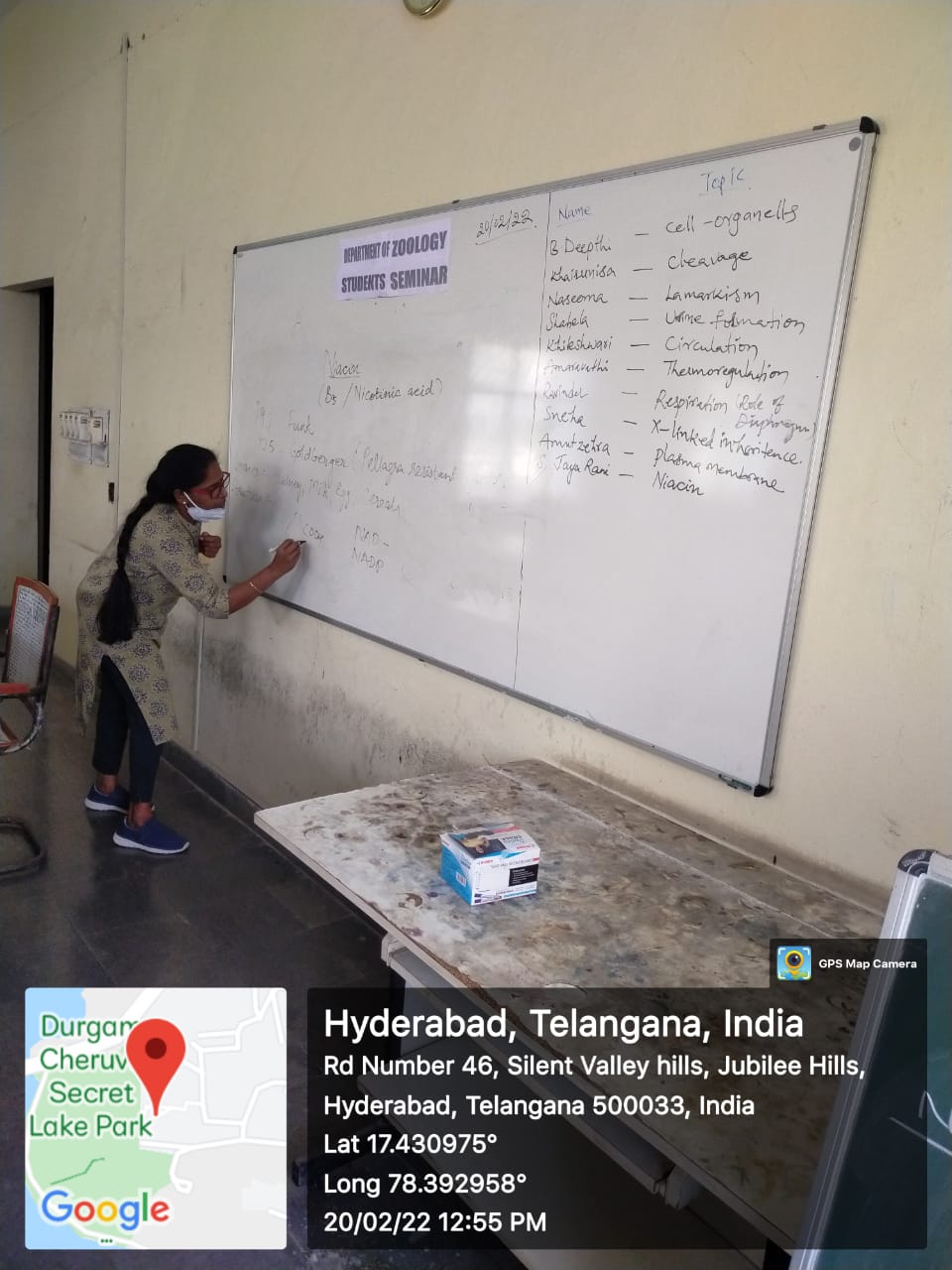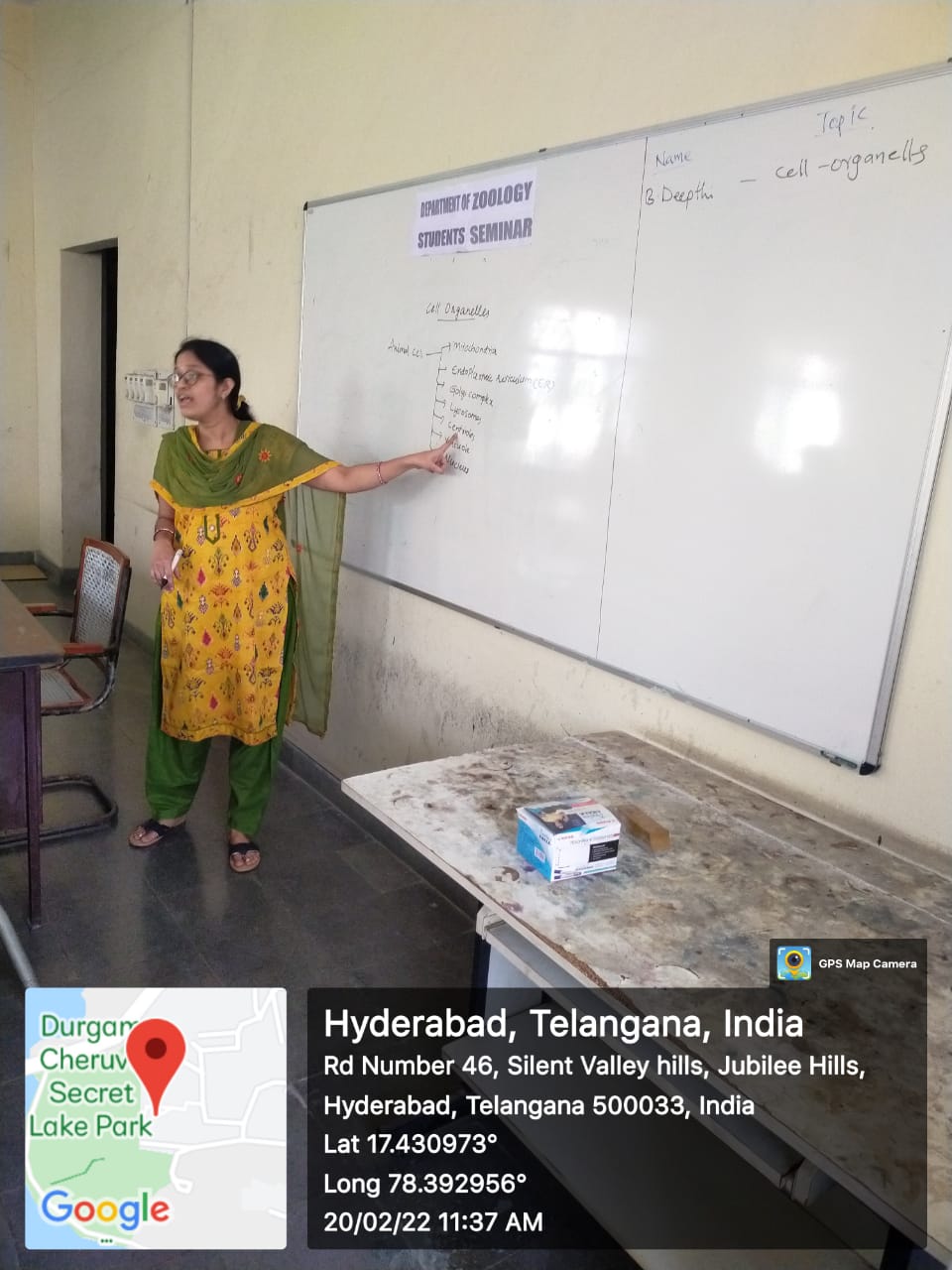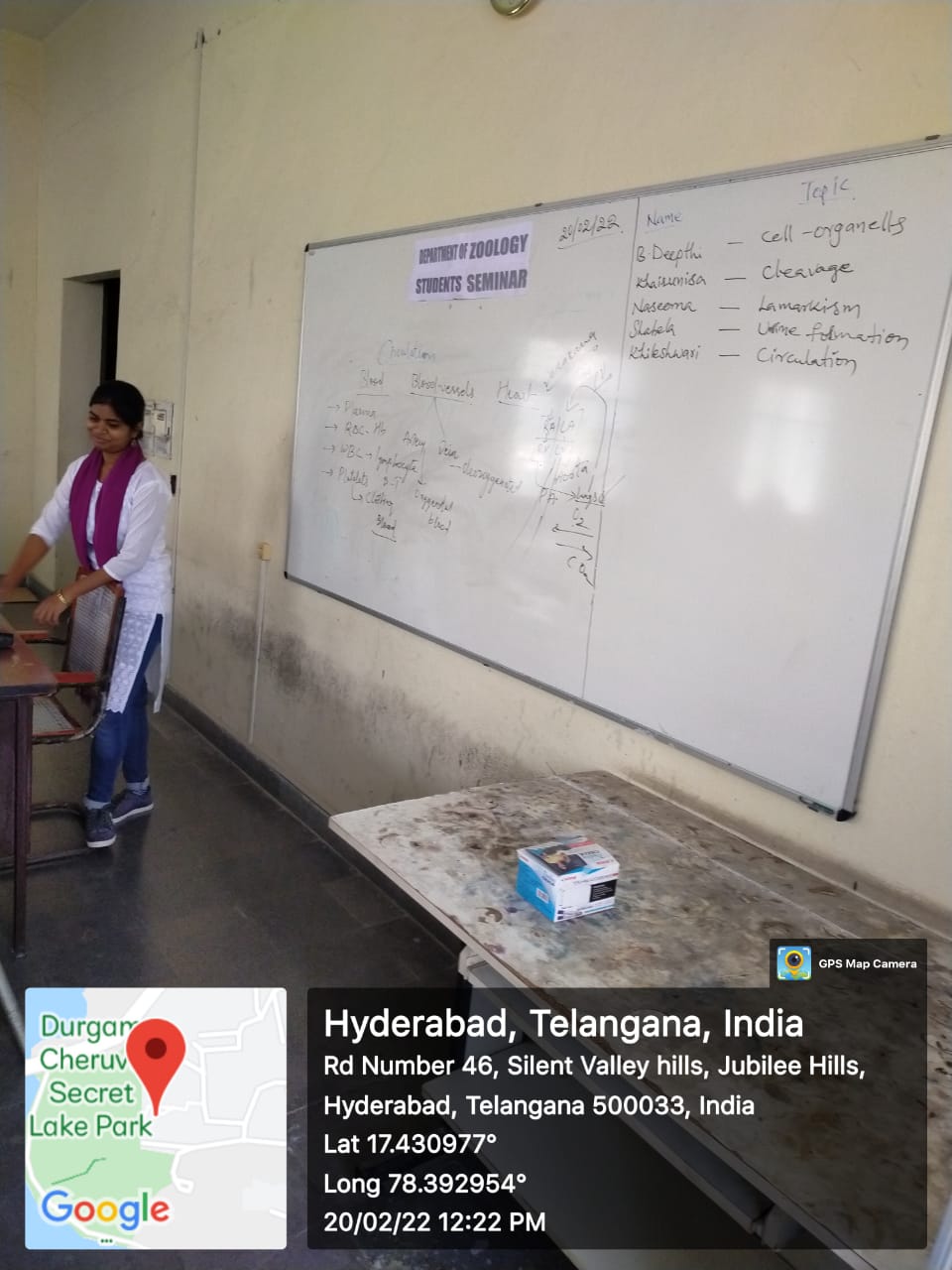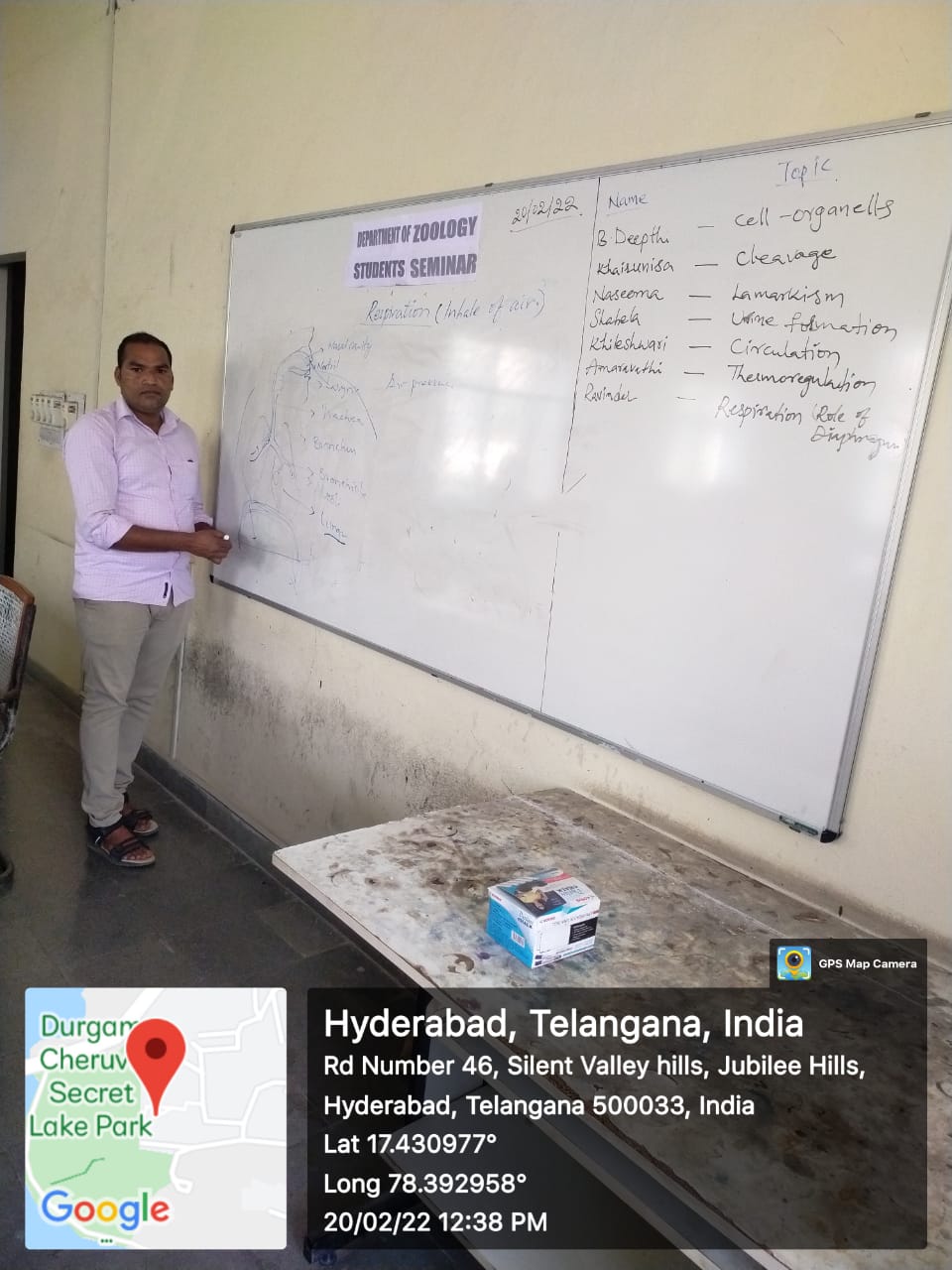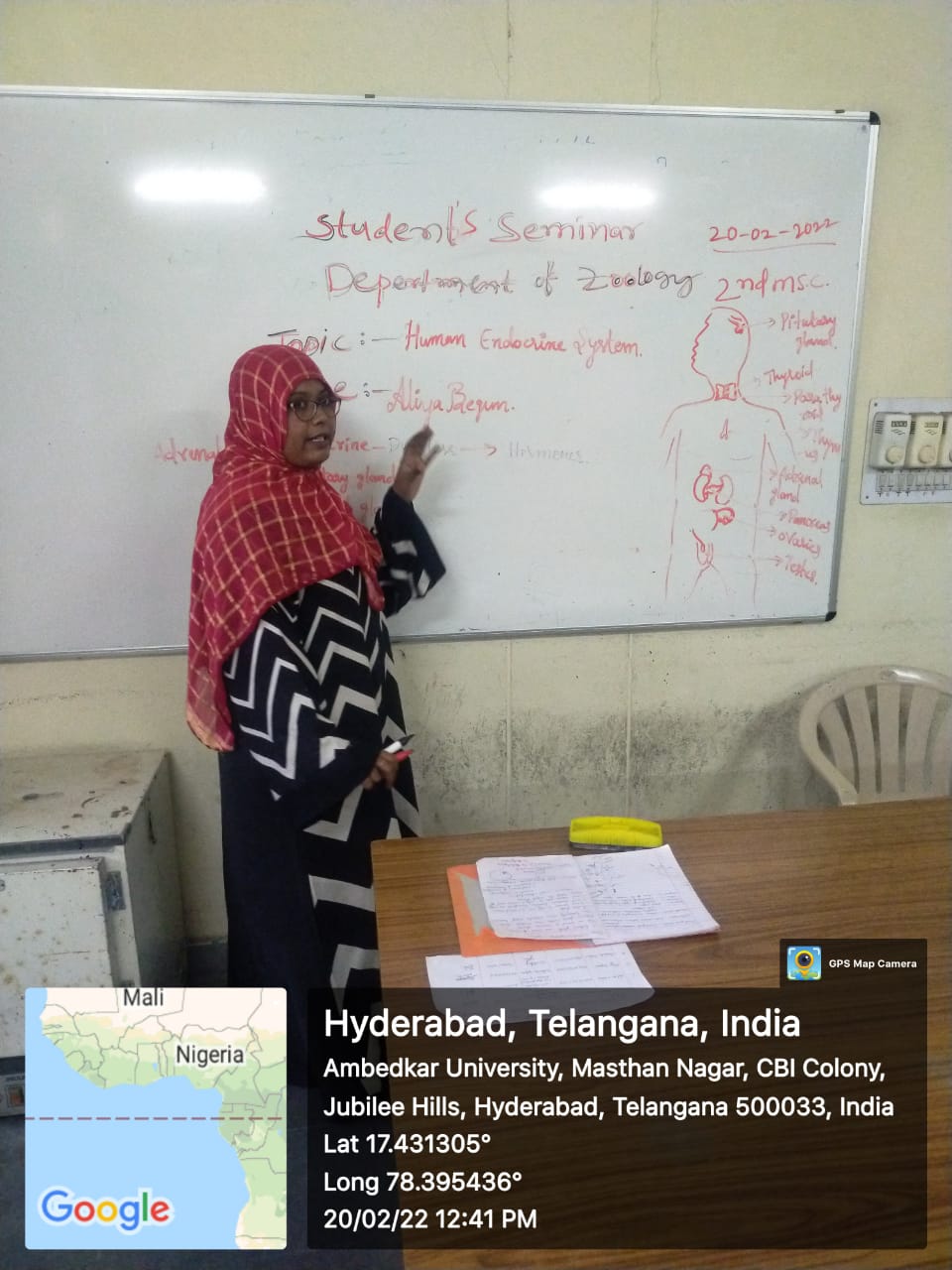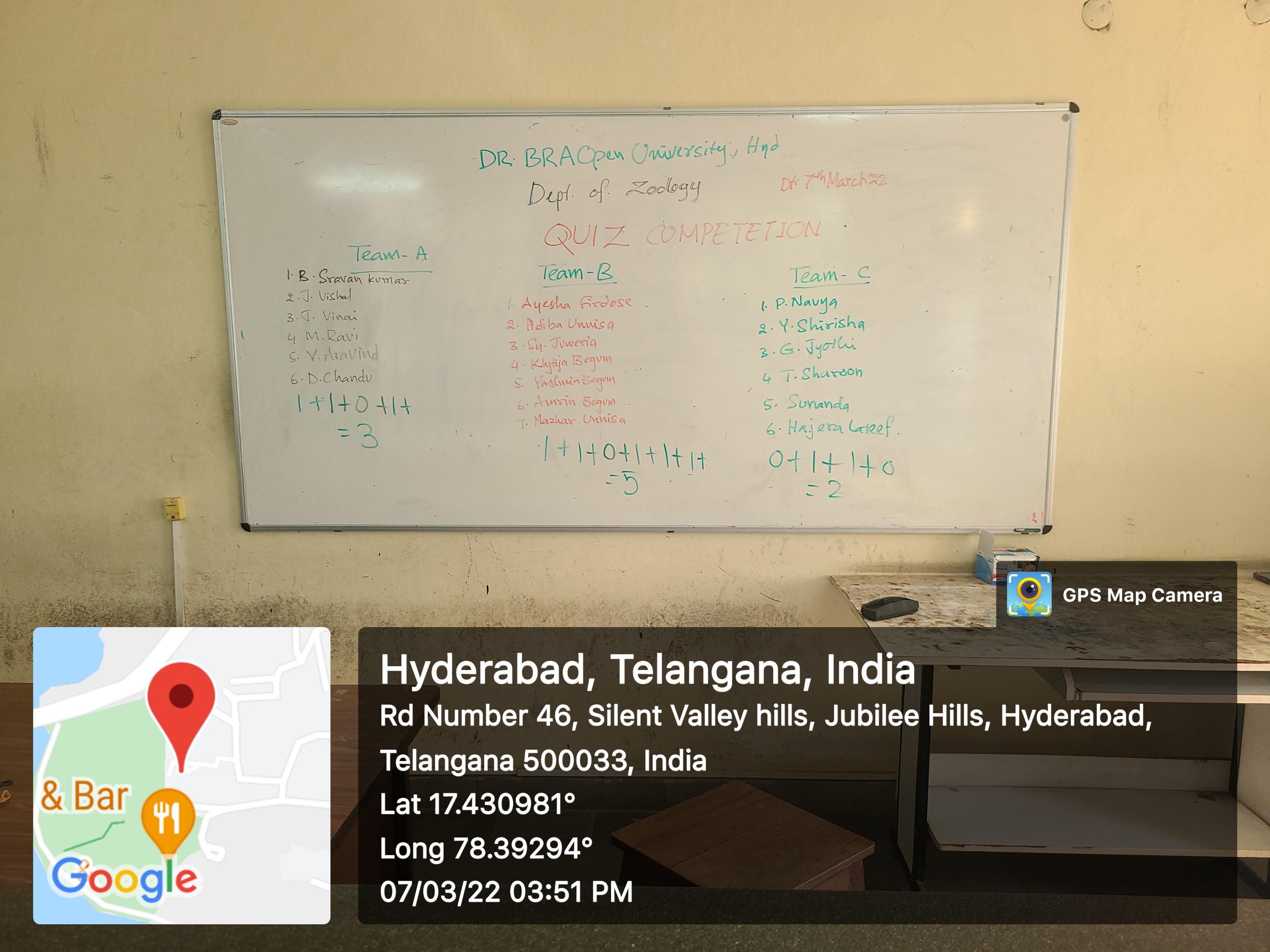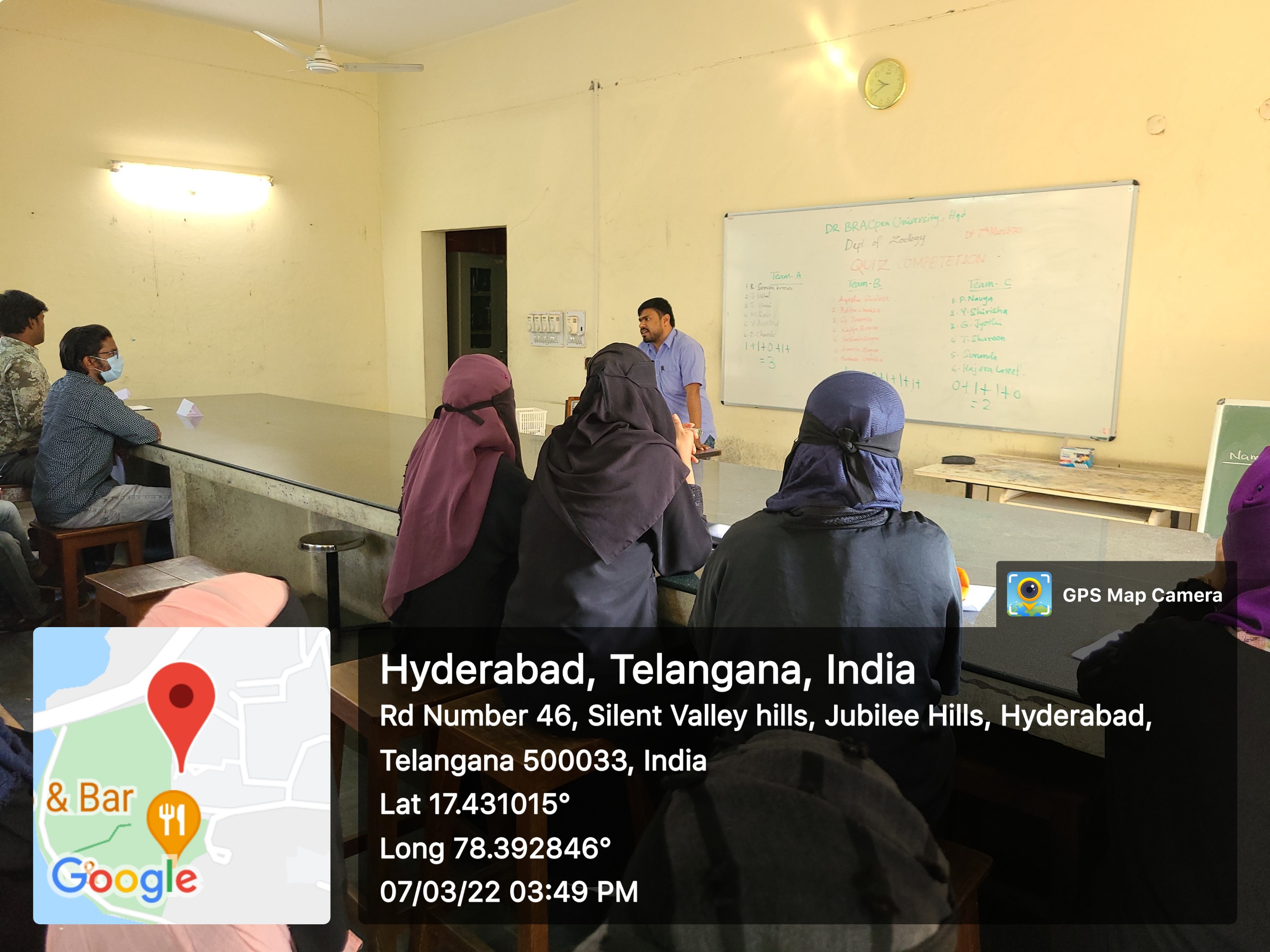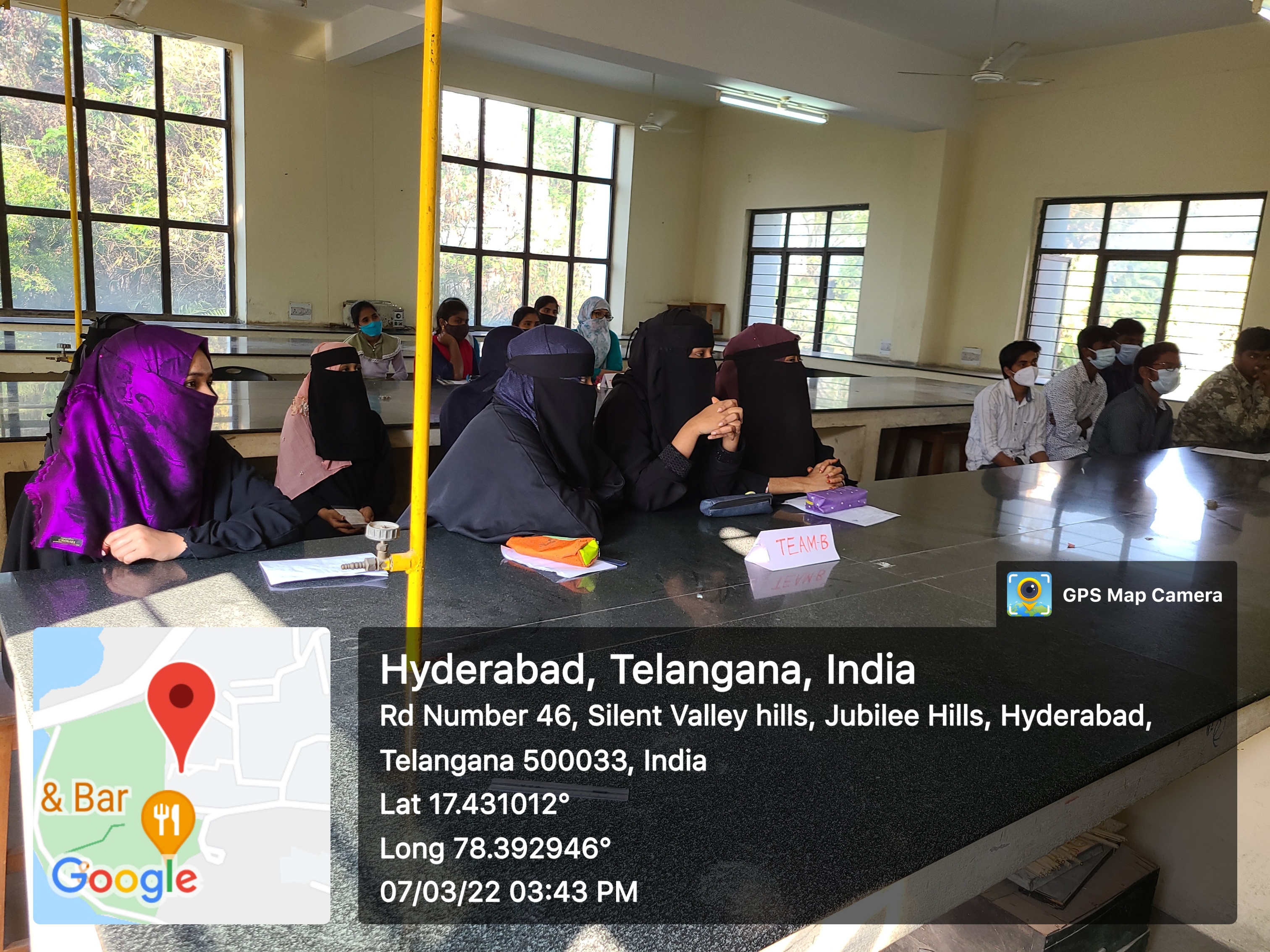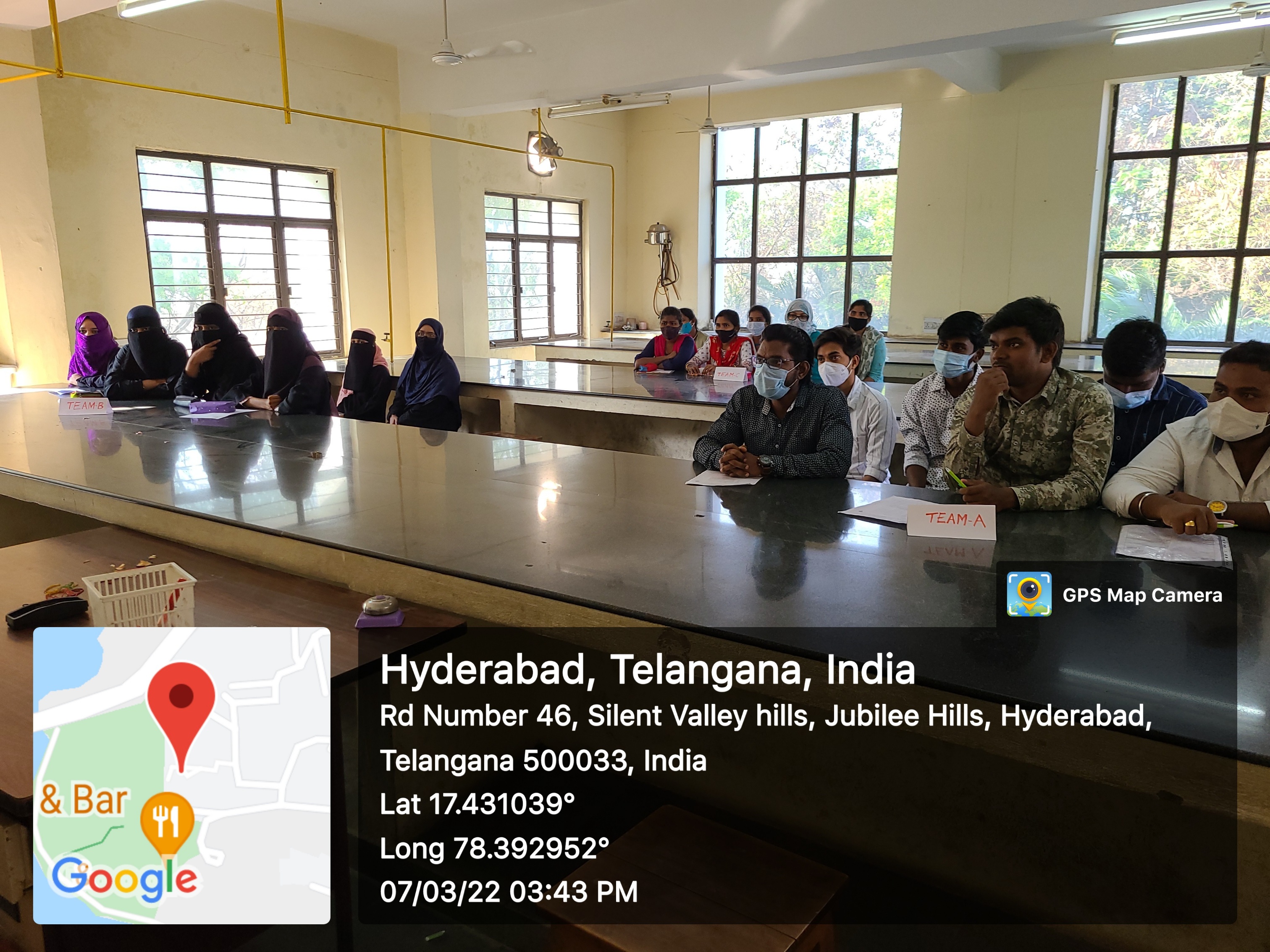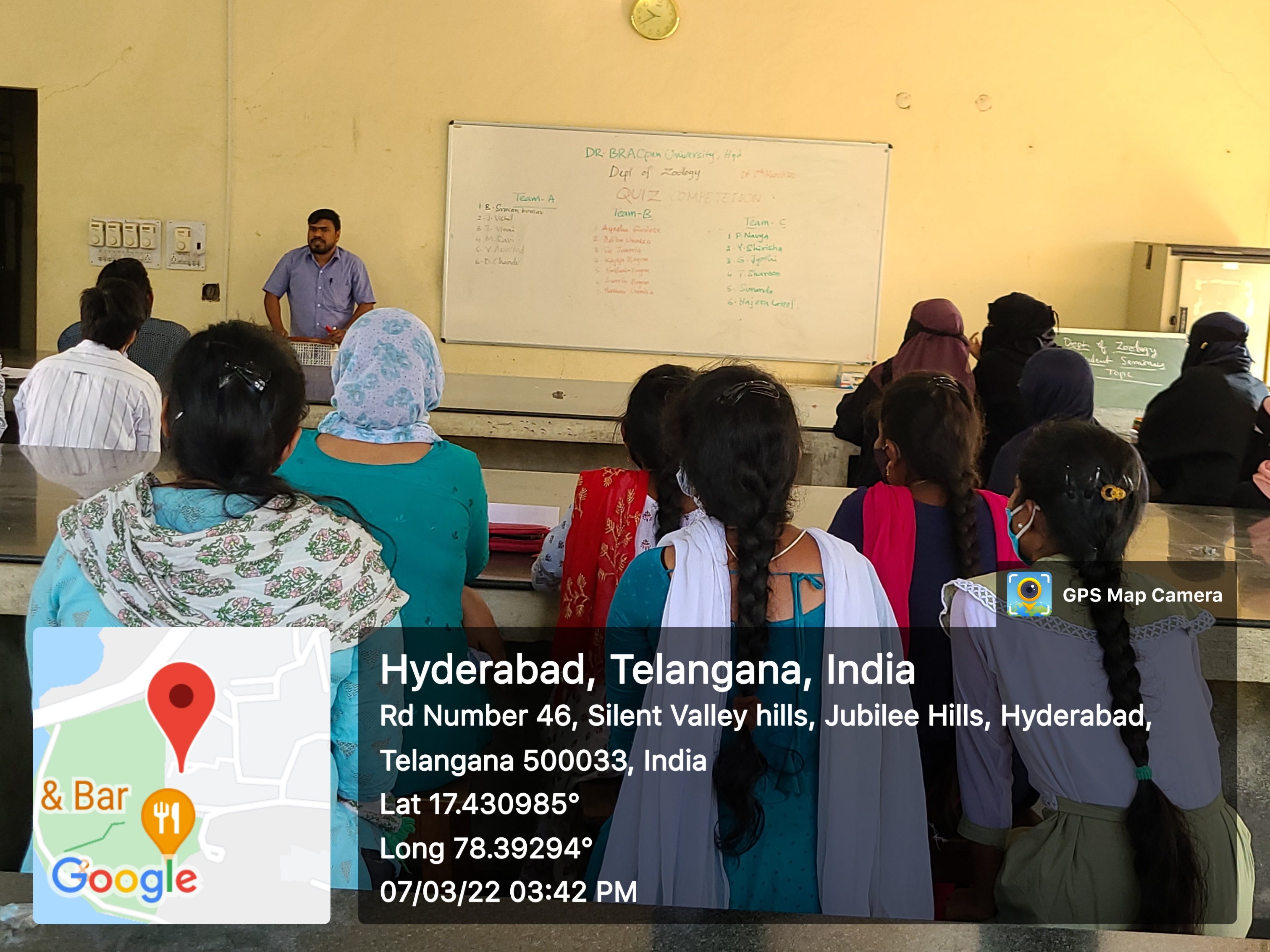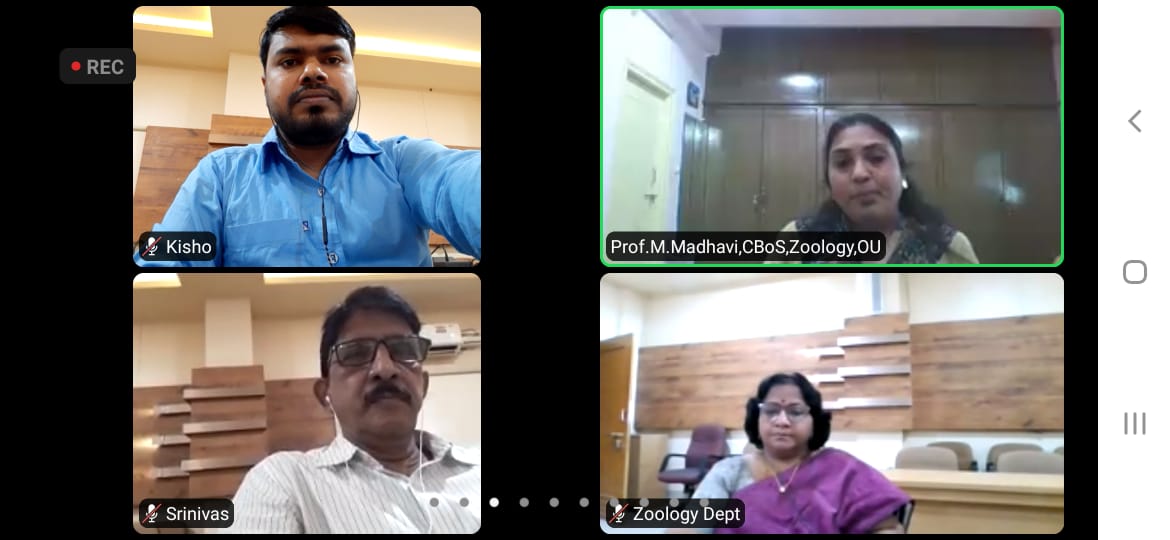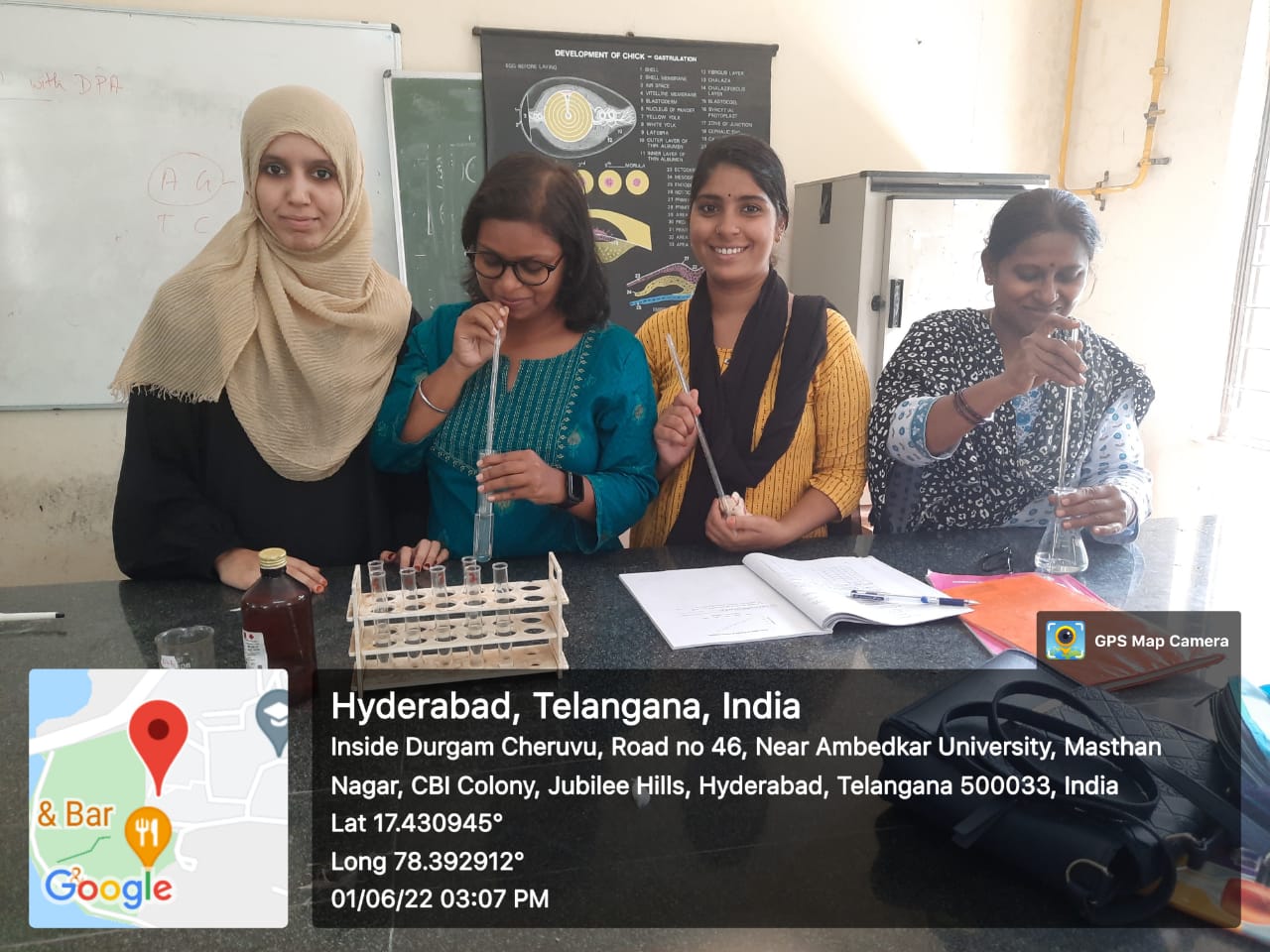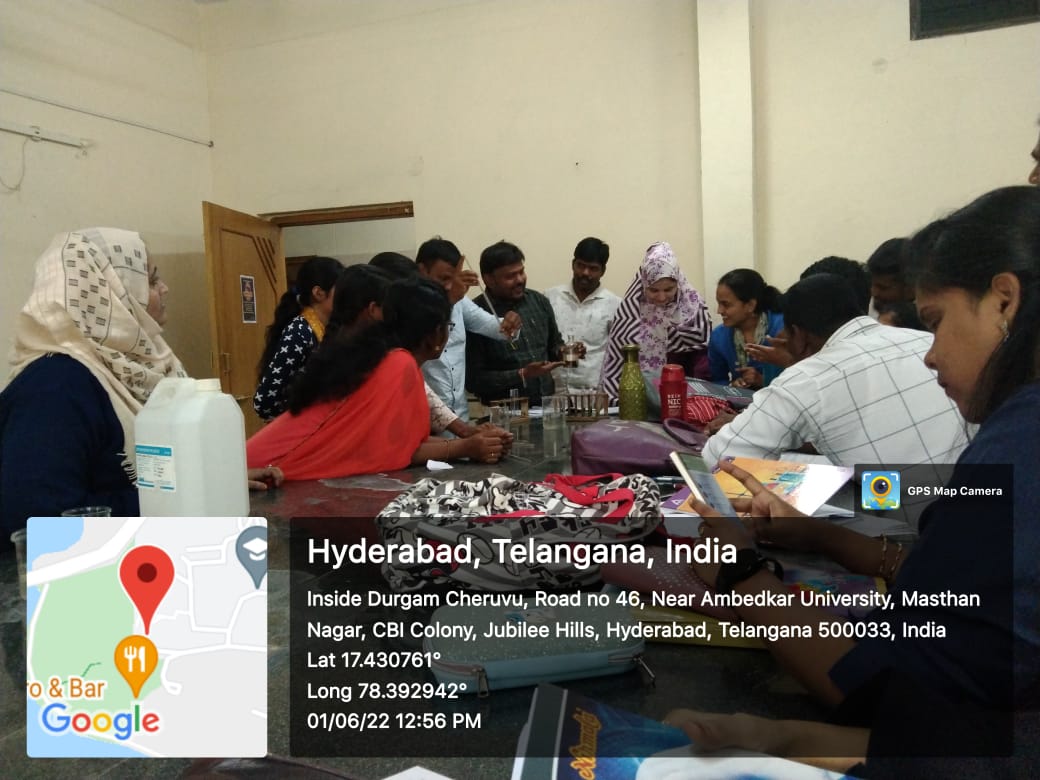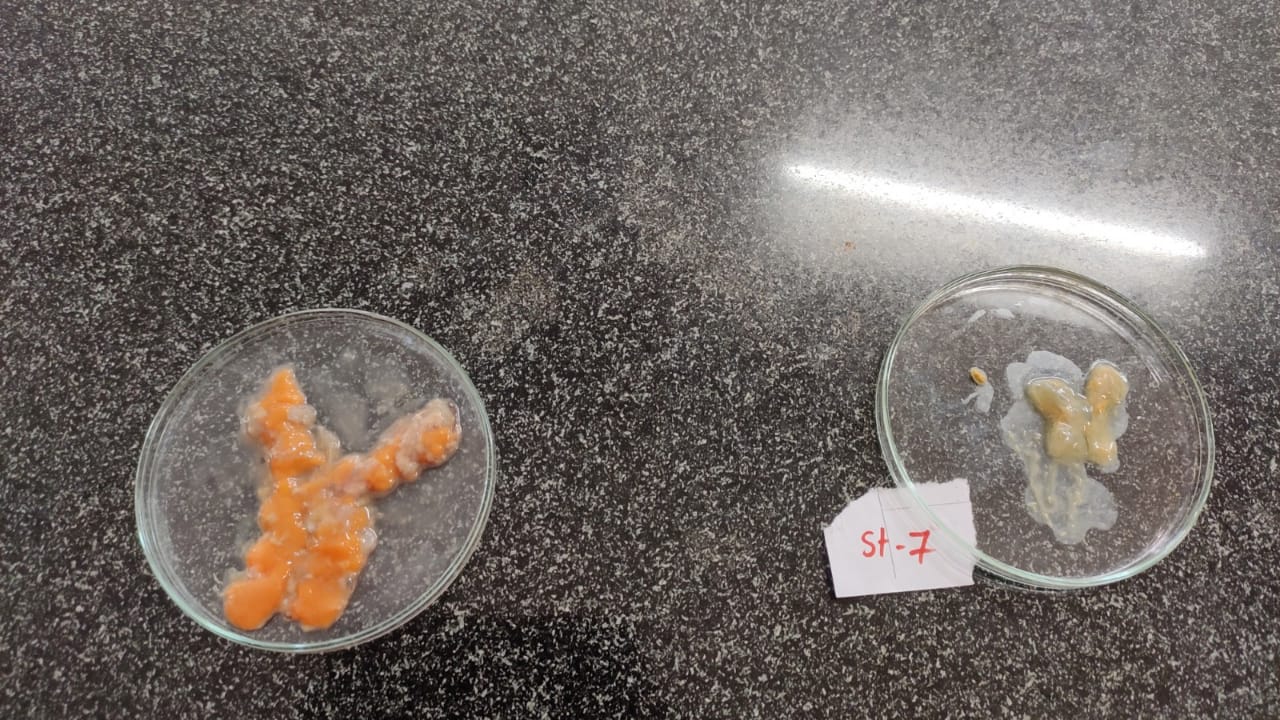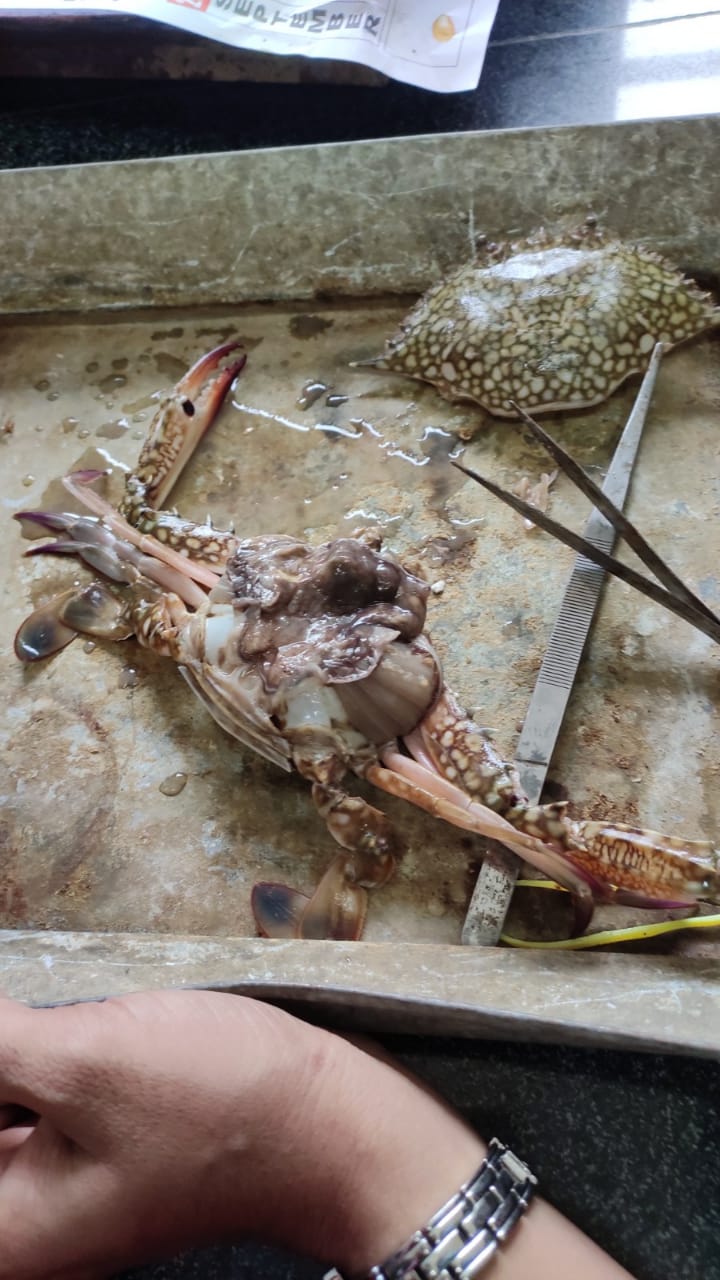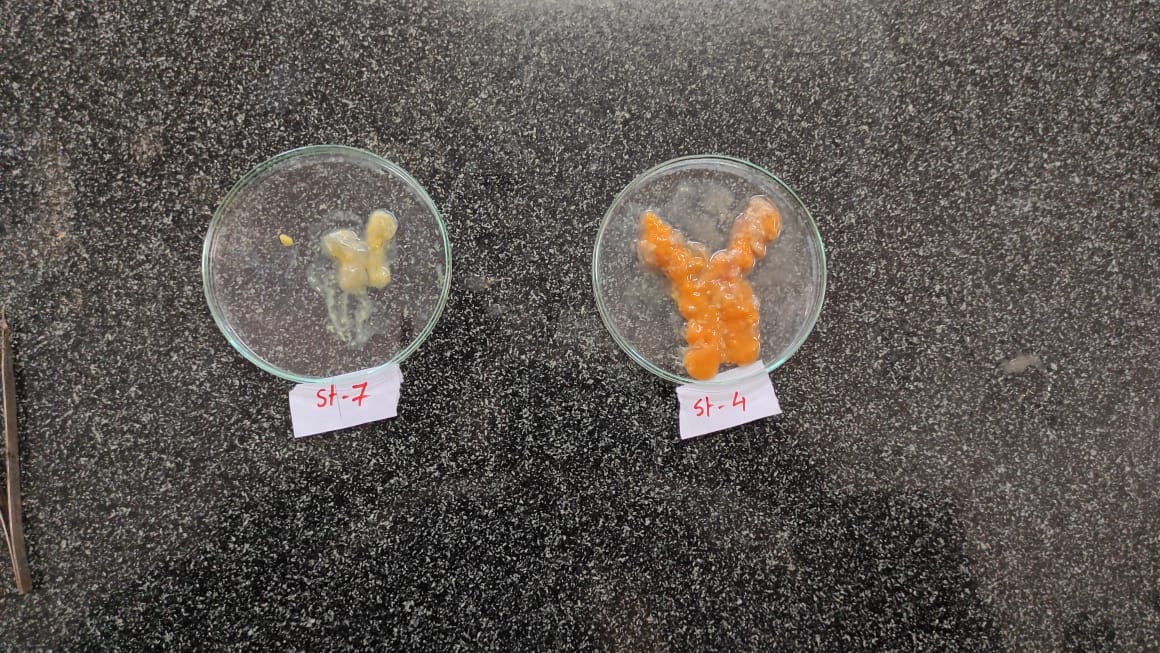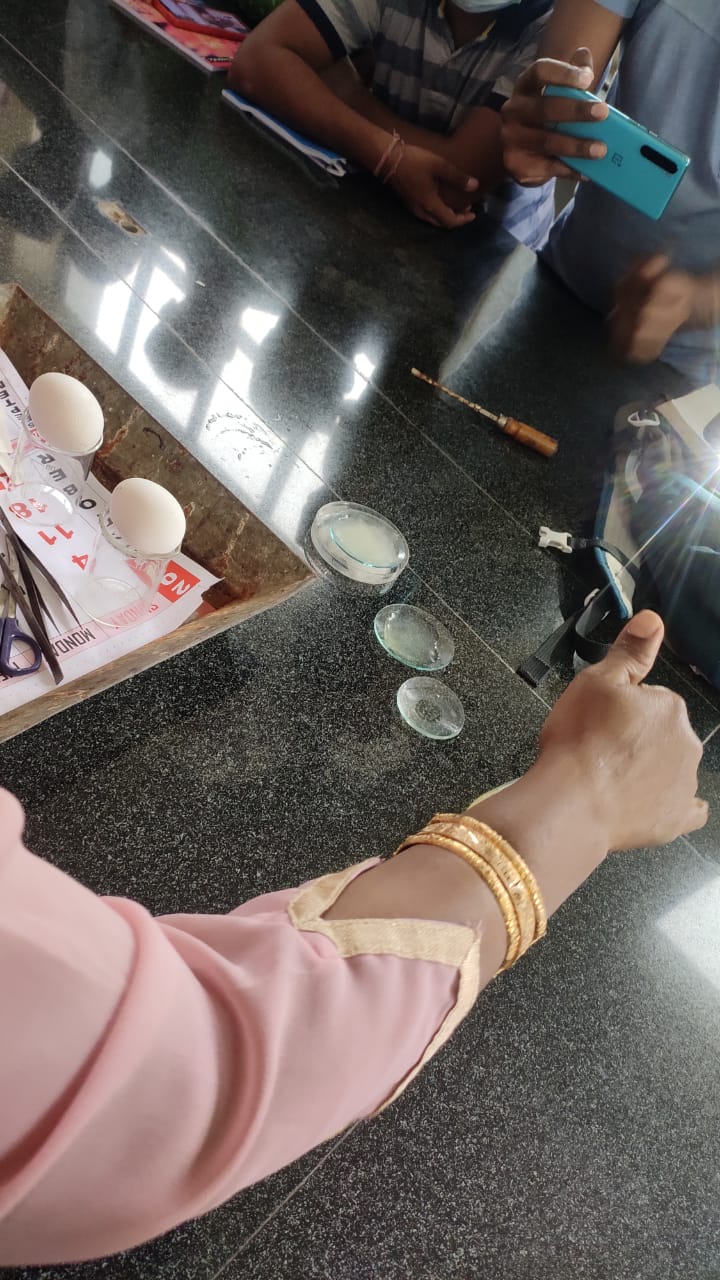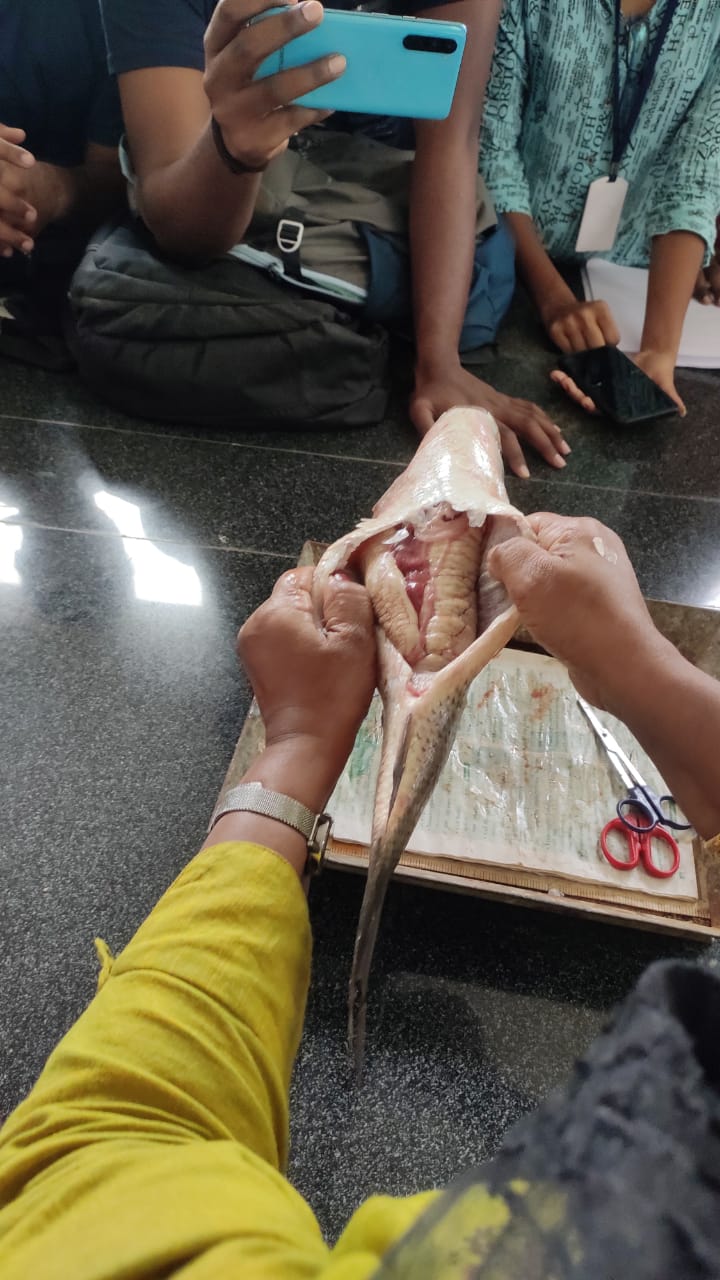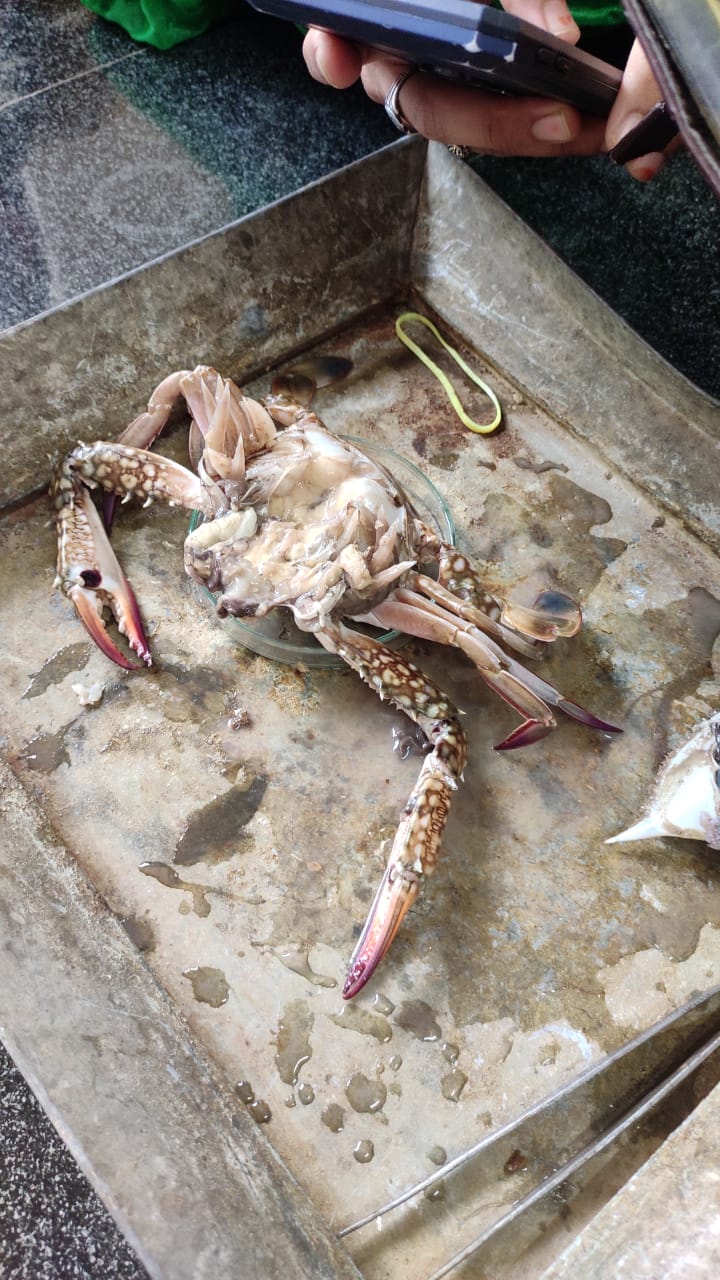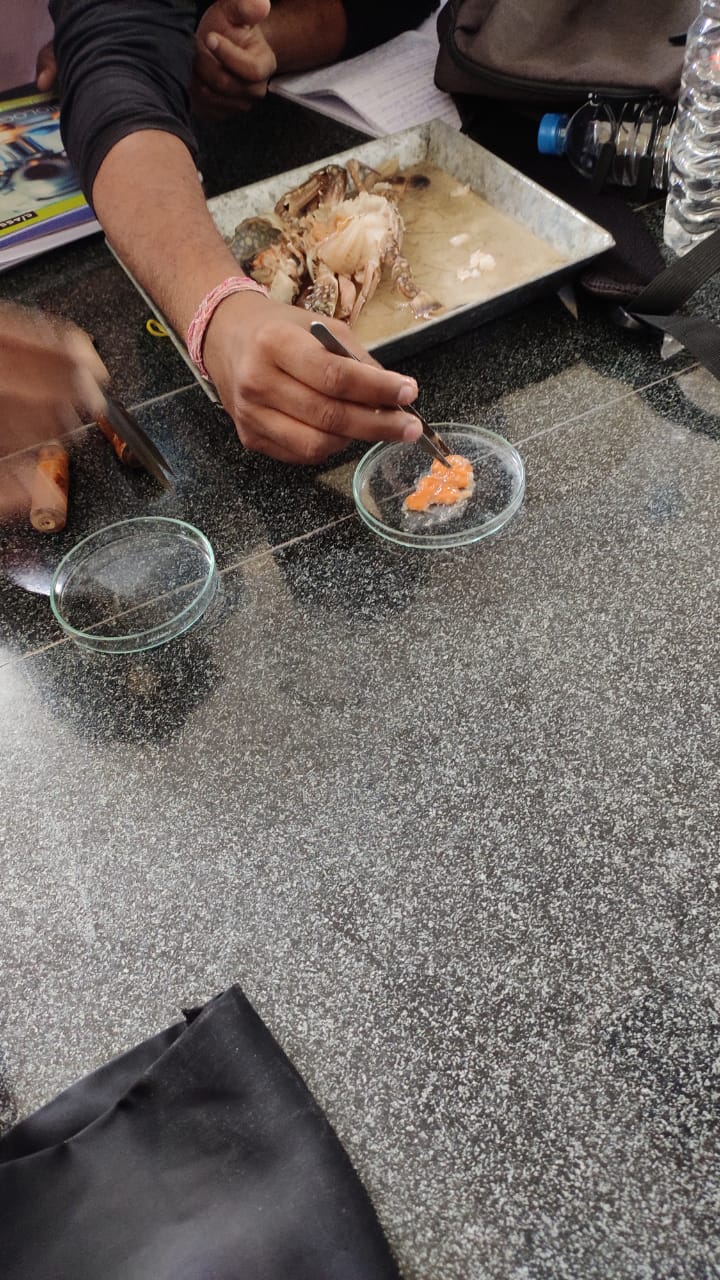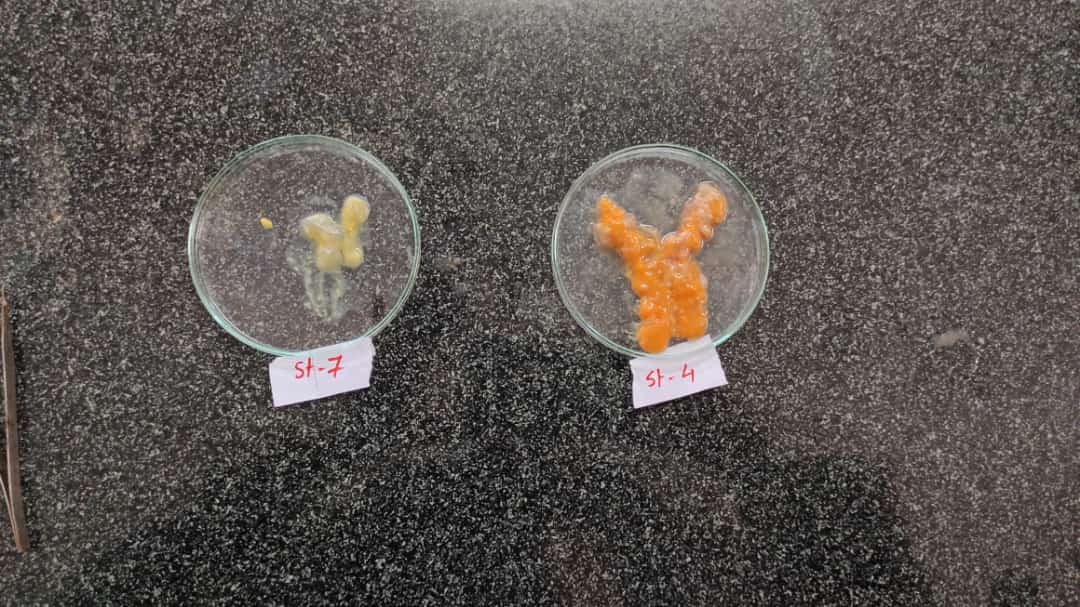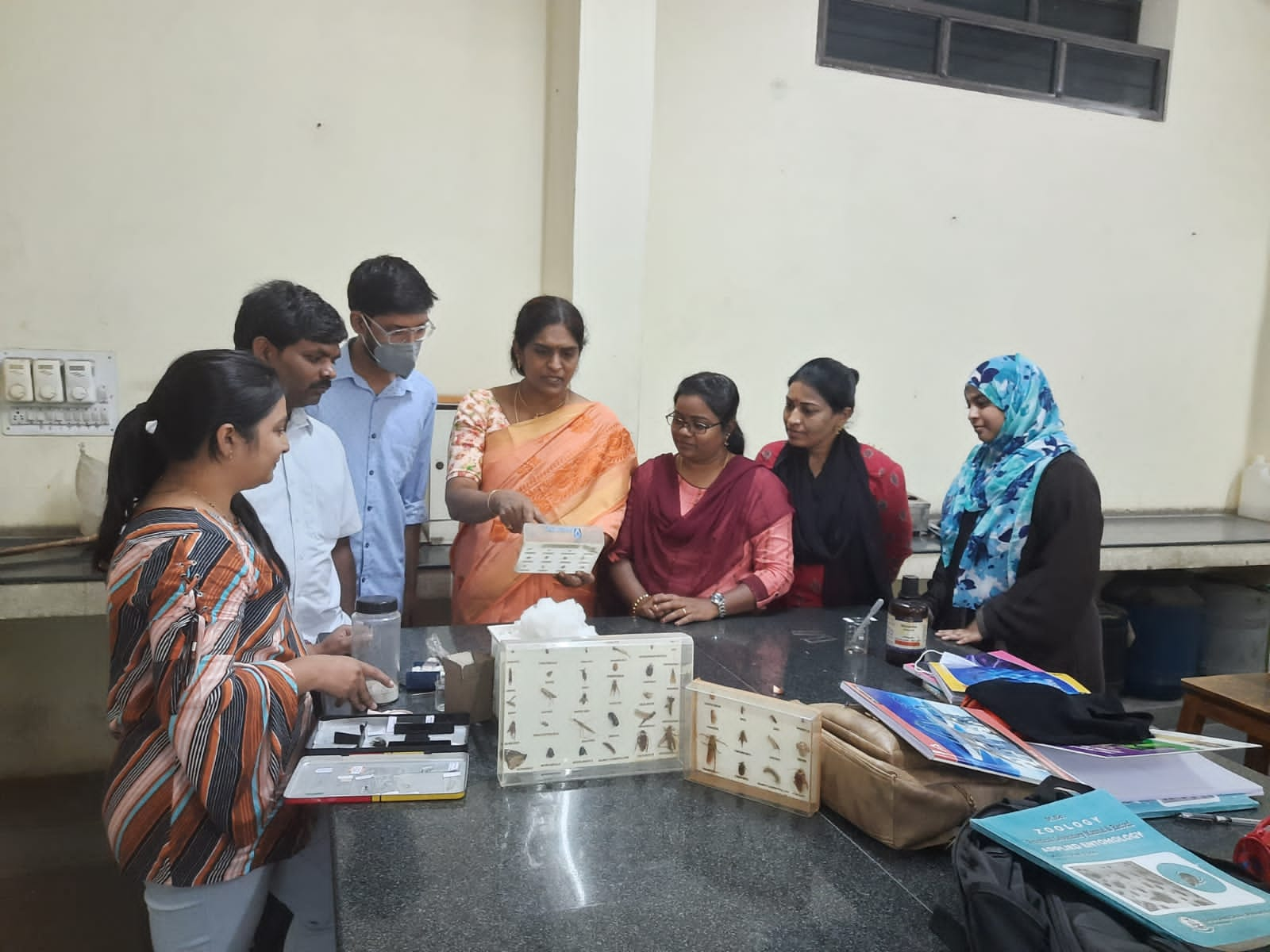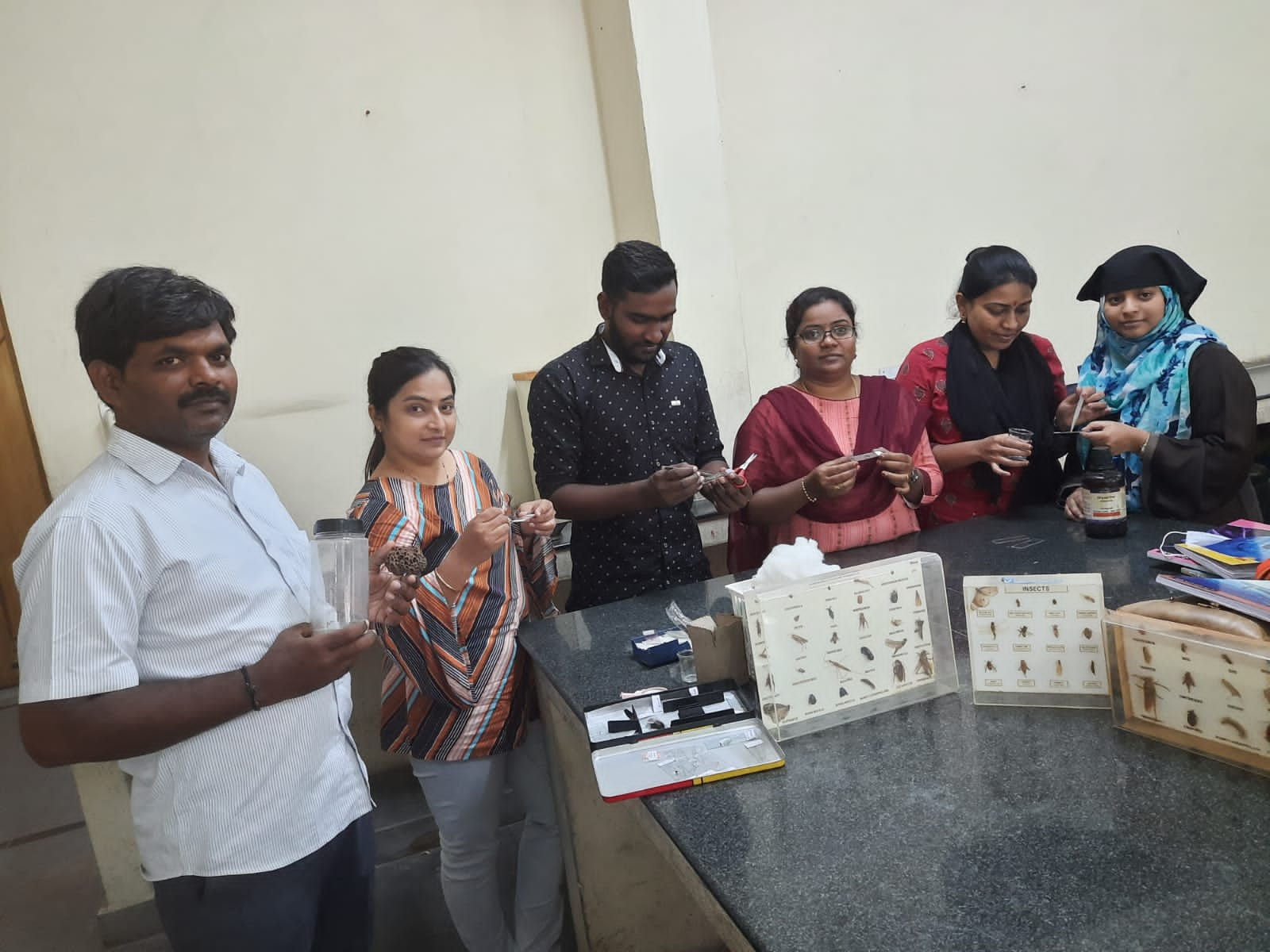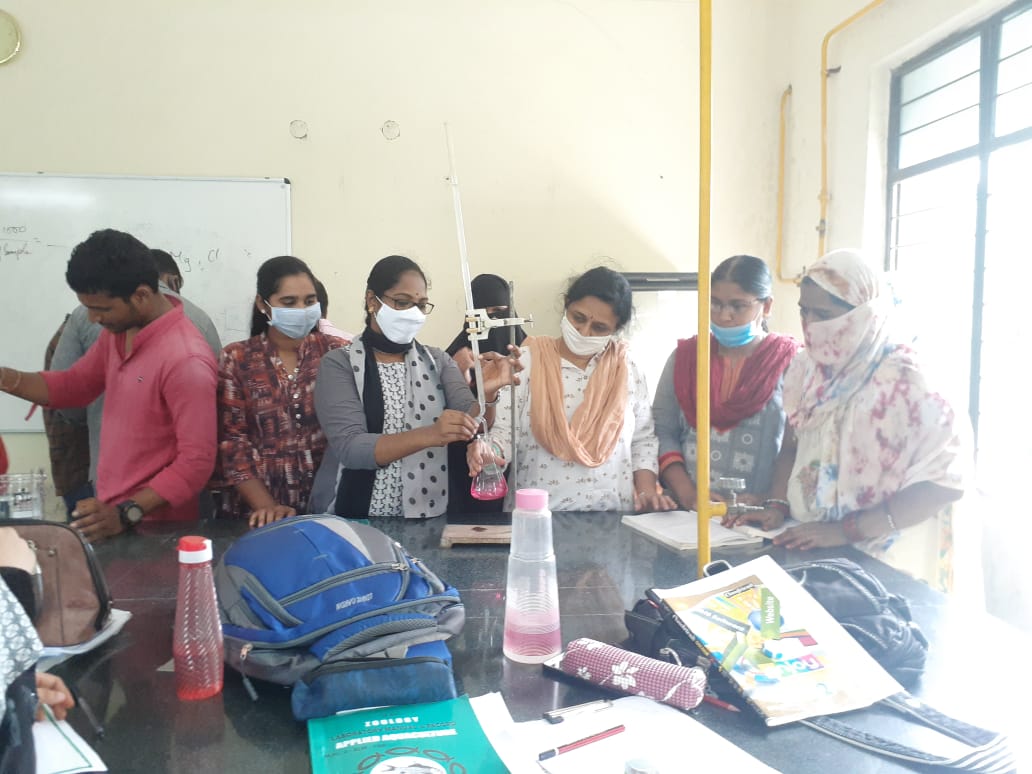1. DEPARTMENT OF ZOOLOGY
Zoology is an important branch of natural sciences which deals with animal sciences. It favours the learner to understand the structure and functions of different organs of our body. This subject gives an idea about the animal fauna in the world and their importance in the ecosystem. This subject helps the beginners to opt for medical, veterinary, agriculture, and other applied courses. In recent times many branches were exploited for the welfare of mankind. They are genetics, microbiology, biochemistry, biotechnology, medical biology, medical transcription, aquatic biology etc. It is one of the traditional subject which is in the forefront in vertical mobility in education. It also places the students to get good placements after pursuing higher studies. Open university is aimed at imparting education to Unemployed Graduates, Working Professionals , Homemakers etc.
2. HISTORY
The department of Zoology was started along with establishment of the Dr.B.R.Ambedkar Open University in the year 1983. This institute is aimed to meet higher educational needs of rural students in distant mode. M.Sc Zoology programme is introduced from the academic year 2008-09 with a limited seats. The faculty is contributing their role in imparting good education in the field of zoology in UG and PG. Further faculty are engaged in course material preparation too.
Objectives of UG Zoology:
- To Impart basic knowledge of various branches of Zoology and enable the learners to take certification of Master's degree in Zoology.
- To Understand the unity of life with the rich diversity of organisms and their ecological and evolutionary significance.
- To create a scientific attitude to make students open minded, critical and curious.
- To apply the theoretical knowledge gained during the program to the actual practice of laboratory.
- To acquire basic knowledge and skills in certain applied branches to enable them for self employment.
- To pursue creative research and strive for new innovations in order to serve the nation for a suitable future.
- To prepare students for designing, conducting independent research in the area of their interest.
Target Group: This programme specifically aims at enhancing the professional competencies of the teachers working in secondary and higher secondary schools as well as the technical skills, laboratory and scientific assistants working in the research institutes, laboratories of schools and colleges and R and D labs of chemical industries.
- Fresher students intending higher education.
- Remote/ village intending learners.
- Those who cannot attend a full-time program due to constraints.
- Working Professionals.
- Government employees.
- Home Makers.
Eligibility for UG: The students / learners with 10 + 2 from science or equivalent.
Objectives of M.Sc., Zoology:
- To generate the human resource in the form of learned students and researchers in the subject zoology.
- To make aware the students about local, National and Global Faunal and floral biodiversity, the dynamics in biodiversity and its reasons, to conserve it for sustainable utilization.
- To introduce the students about use of animal resource for entrepreneurship development and to generate employment.
Eligibility for PG Zoology - Under Graduation in any Science and technology with Zoology as one of the subjects from any one of the Indian University recognized by UGC.
I. Present Faculty Profile
|
S.No.
|
Name of the faculty member |
Designation
|
Qualifications
|
Teaching experience
|
Specialization
|
Awards
|
|
1.
|
Dr.P.Srinivas
Associate Professor (Retd.)
|
Senior Academic Associate
|
M.Sc., Ph.D.,
B.Ed.,PGDCMP., CYP-PGDYDW
|
33yrs(GovtService)
5yrs(DR.BRAOU)
|
Cell Physiology
|
State Best Teacher 1996
|
|
2.
|
Kishore Mendam
|
Academic Associate
|
M.Sc.,(Ph.D.), NET(CSIR)& APSLET
|
5yrs
|
Entomology
|
--
|
Academic flexibility:
|
COURSE |
UG/PG |
MEDIUM |
YEAR OF INTRODUCTION
|
|
B.Sc., Botany, Zoology, Chemistry
|
UG |
TM & EM |
1983 |
|
M.Sc Zoology |
PG |
EM |
2008 |
Mode of Admission :
For admission into B.Sc., and M.Sc. (ZOOLOGY), one should enter into the portal of BRAOU i.e. www.braouonline.in and click on Admission Registrations for PG/ Diploma / Certificate Programmes in Online Admission Registration Form. Fill the form with your credentials, Admission will be allotted on the basis of merit in the subject concerned at the qualifying examination merit following rule of reservation. Admission shall be made on the Study Centre- basis. Candidates have to indicate in the application their preference of Study Centre for admission. Normally, the selected candidates are allotted the Study Centre of their choice. However, the University reserves the right to allot a student to any Study Centre other than that chosen by the candidate. Admission into UG programme is limited to Andhra Pradesh and Telangana States while P.G Programme in zoology is open to all citizens of India.
Curriculum Update:
For UG course:
During the 2016-17 academic year CBCS pattern is adopted for UG courses in Telugu, English and Urdu medium. UGC guidelines are followed not to kill the animal and subjects are taught using charts, models, photographs, drawings where ever necessary. Computer aided techniques are also adopted for dissections. Core course is dealt with four blocks each with three units, totaling to 12 units, while two blocks each with four units totaling to 8 units for practicals along with projects are taught. Skill Enhancement Electives are dealt in two blocks each with four units. For all the course material model questions papers are included at the end. For practical course material manual and record book is combined to reduce the financial burden to learners. And in each practical paper course material model question paper, question bank and two to three blank sheets are included for writing projects are given for the benefit of learners.
First year zoology I-SEM theory syllabus (Animal Diversity-Invertebrates, Paper-I) was changed and restructured considering the subjects taught at +2 stage ie., intermediate. The syllabus is classically arranged into 12 units which deal with Nonchordata phylums and Hemichordata (General characters, classification, type study). Practical paper includes specimens and slides of nonchordates and dissections spread in 8 units. First year zoology II-SEM theory syllabus (Animal Diversity-Vertebrates, Paper-II) deal with Protochordates and Chordates (General characters, classification, type study and along with Dinosaurs, poisonous and non-poisonous snakes, flight adaptations, migration of birds, aquatic adaptations of mammals) in 12 units. Practical paper-II includes specimens, slides, osteology, histology and dissections in 8 units.
In Second year zoology III-SEM core syllabus deals with Ecology, Zoogeography and Developmental Biology (Paper-III). Paper III practical syllabus deals with determination of soil parameters, study of zooplanktons, endangered animals, zoogeographical realms and field visit to zoo. In IV-SEM core syllabus deals with Cell and Molecular Biology, Genetics and Evolution (Paper-IV). Practical paper-IV again dealt with Cytology, Genetics, Evolution. Further Under Skill based programme two papers (i) Apiculture -SEE-1 (ii) Vermiculture-SEE-2 are introduced.
Third year zoology V-SEM core syllabus deals with Physiology and Biochemistry while practicals are dealt with qualitative tests of biomolecules. Electives in V-SEM includes Principles in Aquaculture DSE-A, Sericulture DSE-B. VI-SEM core syllabus includes Immunology and Animal Biotechnology and same subjects are dealt in Practical paper-VI. While electives are dealt with Fish Genetics and Seed Technology- DSE-C, Silkworm Breeding and Grainage- DSE-D as VIA and VIB papers. And practical’s are carried in the same subjects.
For PG Course:
Since the inception of the programme four courses in first year and four in second year along with practical courses were introduced. The syllabus is classically arranged into 16 units in theory courses while 12 in laboratory courses.
In first year Course-1, Animal diversity and Ecology, Course-2, Cell and Molecular Biology, Course-3, Animal Physiology & Physiological Chemistry, Course-4, Human Cytogenetics and Development Biology along with coresponding courses in practical courses.
In second year Course-5, Immunology, Course-6, Animal Biotechnology, Course-7, Toxicology, Course-8A, Aquaculture and Course-8B, Entomology along with corresponding courses in practical courses. Two assignments are compulsory in each year and 30 marks are allocated to assignments.
Course is delivered in theory and practicals and medium of instruction is English only. The duration of the programme is two years. However, a student can complete the programme in a maximum period of six years.
II. Student Profile:
Entry Level Competencies: Entry level of students is based on the intermediate marks awarded by Board of Intermediate Education, Hyderabad. Our Open University is in centre of State Capital of Telangana and catering to the educational needs of poor students.
Under graduation course: following table indicates the entry level competencies of UG students.
Post graduation course: following table indicates the entry level competencies of PG students.
Strategy adopted for learners:
A.Student Support arrangement: The academic activities are of Couselling cum Contact Classes at Study Centers, 120 hours for theory and 144 hours for practicals Couselling cum Contact classes.
Print: Self Learning Material is provided by the University.
Audio: Radio Lessons.
Video: Video Lessons and Tele-conference.
Online: Audio – Video lessons are available for each student with user login ID and password through University website (proposed). The students can seek guidance from Academic counsellors with regard to their study. The Study centres also make available to its students, copies of the Radio time-table indicating the titles of the lessons that are broadcast by the AIR Station, Hyderabad. The Radio lessons, Tele lessons and Tele-Conference are broadcast on five days in a week.
SEMINARS: The Students are assigned with Topics related to their subjects and made them to present in the form of seminars as these from part of curriculum.
|
S.No.
|
Year
|
Date
|
Name of the Student
|
Class
|
Topic delivered
|
|
1.
|
2020-21
|
23-08-2021
|
Mohammadi Begum
|
M.Sc Iyr
|
Transcription in
Prokaryotes
|
|
2.
|
|
23-08-2021
|
Akilesh
|
M.Sc Iyr
|
Ecosystem
|
|
3.
|
|
23-08-2021
|
E.Shobha
|
M.Sc Iyr
|
Ecosystem
|
|
4.
|
|
23-08-2021
|
M.Vani
|
M.Sc Iyr
|
Cancer
|
|
5.
|
|
26-10-2021
|
Ayesh Firdous
|
B.Sc,IIIsem
|
Nervous system of Vertebrates
|
|
6.
|
|
26-10-2021
|
E.Revathi yadav
|
B.Sc, IIIsem
|
Ecosystem
|
|
7.
|
|
|
|
|
|
POSTER PRESENTATION: The Students are assigned with Topics related to their subjects and made them to present in the form of POSTERS as these from part of curriculum.
|
S.No.
|
Year
|
Date
|
Name of the Student
|
Class
|
Topic delivered
|
|
1.
|
2020-21
|
23-08-2021
|
Ester Rani
|
M.Sc Iyr
|
Connecting links
|
|
2.
|
|
23-08-2021
|
Mohammadi Begum
|
M.Sc Iyr
|
Recombinent DNA Technology
|
|
|
|
23-08-2021
|
D.Tulasi
|
M.Sc Iyr
|
|
For Further Details
HEAD, Department of Zoology
Faculty of Science
Academic Branch
Dr.B.R.Ambedkar Open University
G.Ram Reddy Marg, Jubilee Hills
HYDERABAD, Telangana, 500033
040-23680501
|

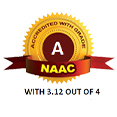

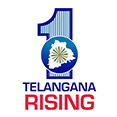
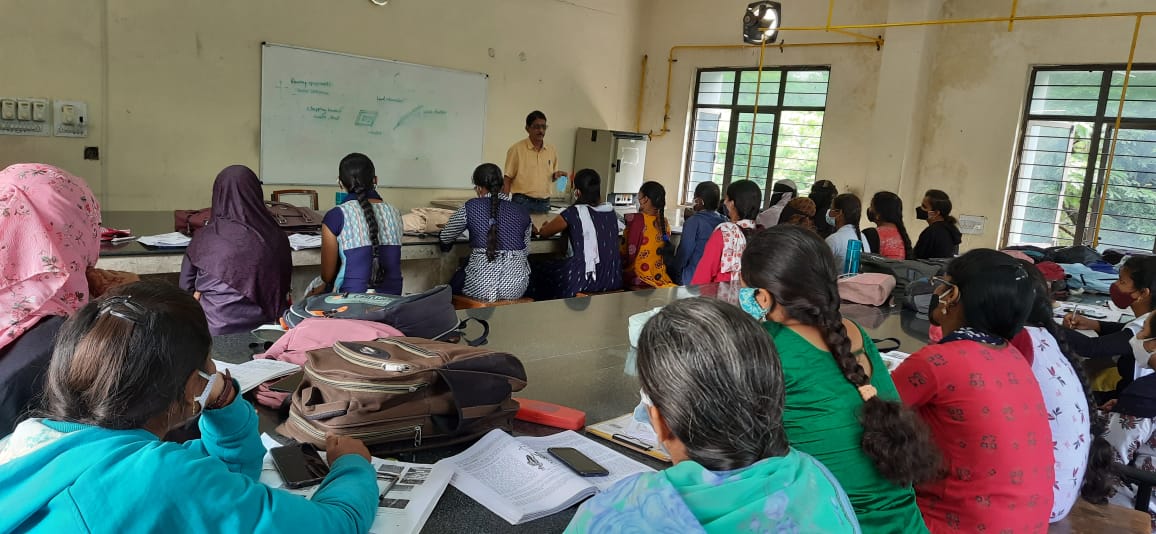
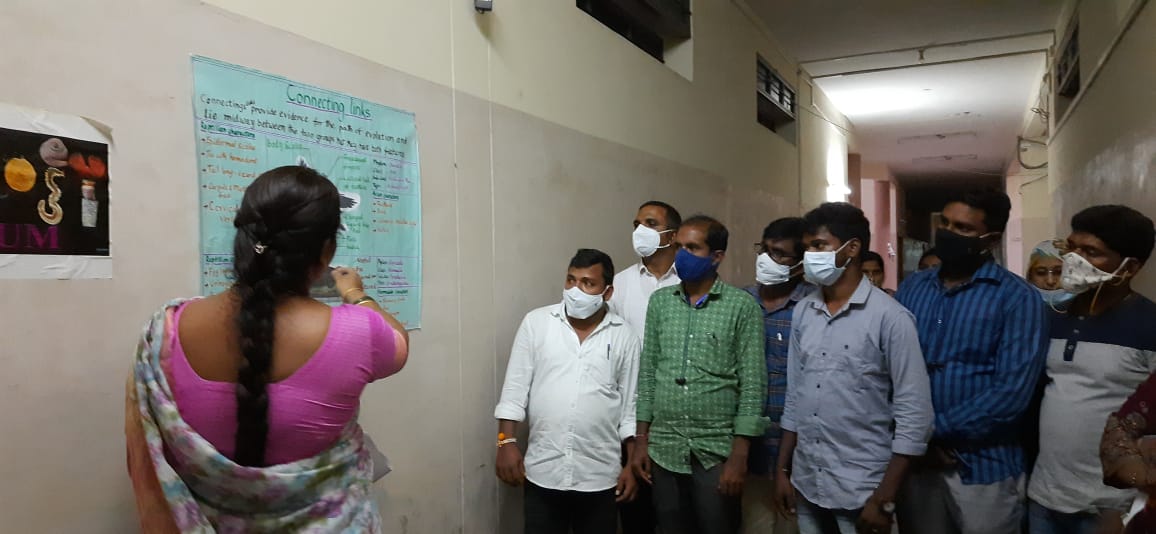
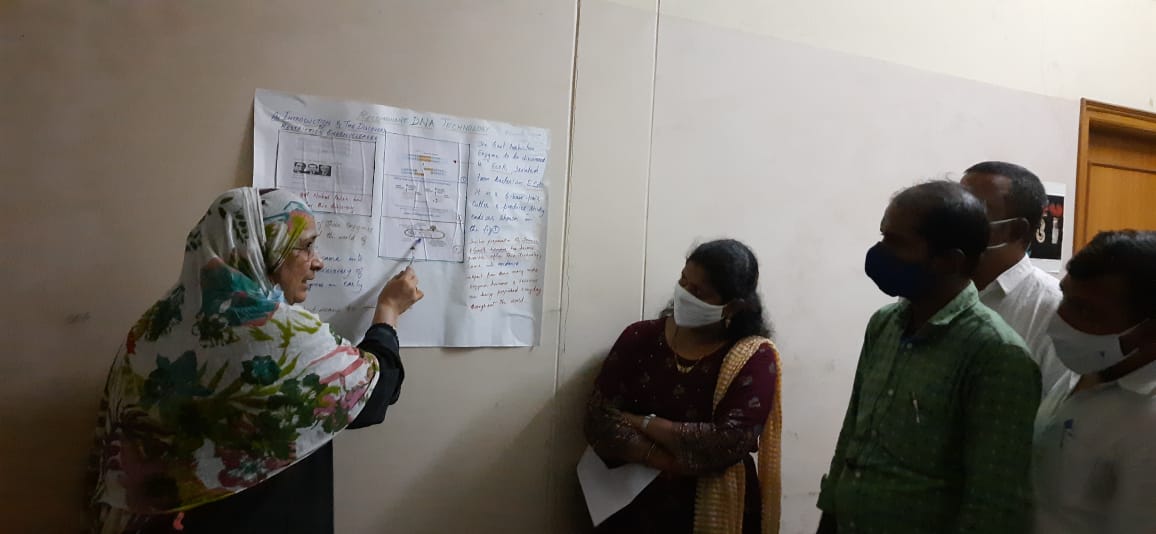
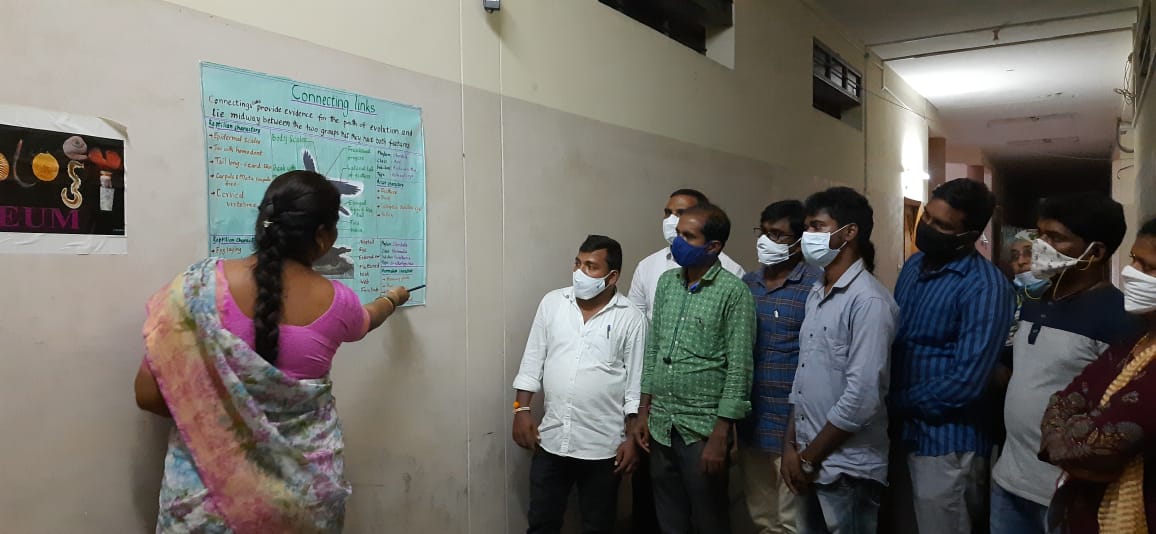
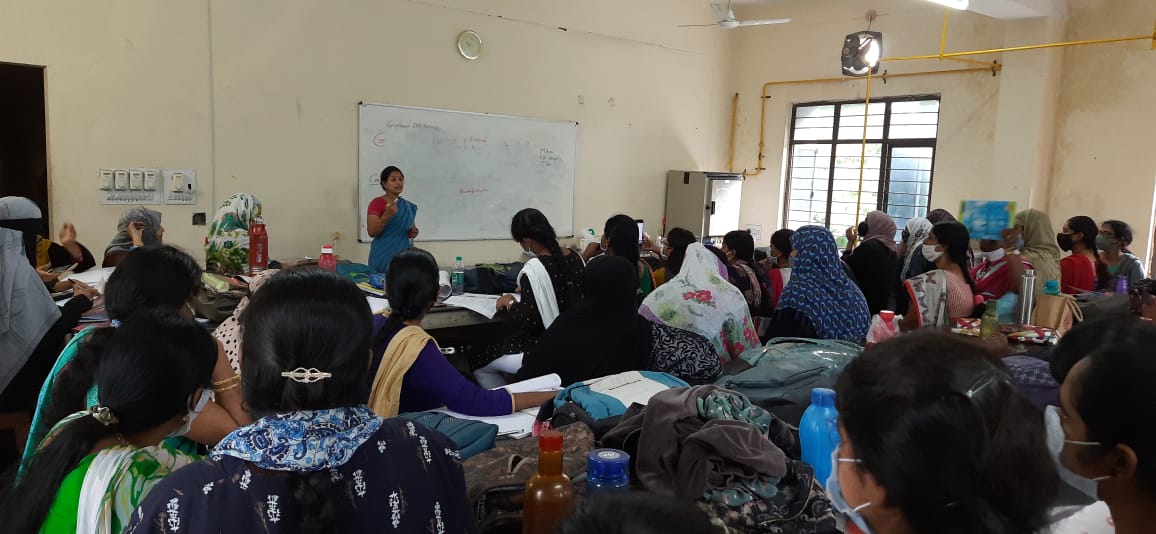
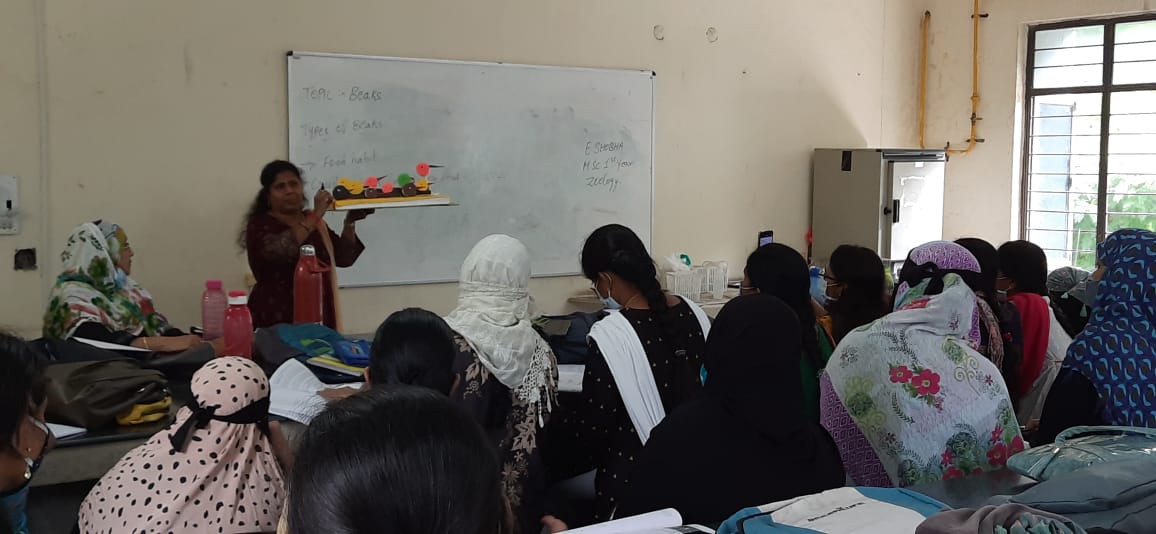
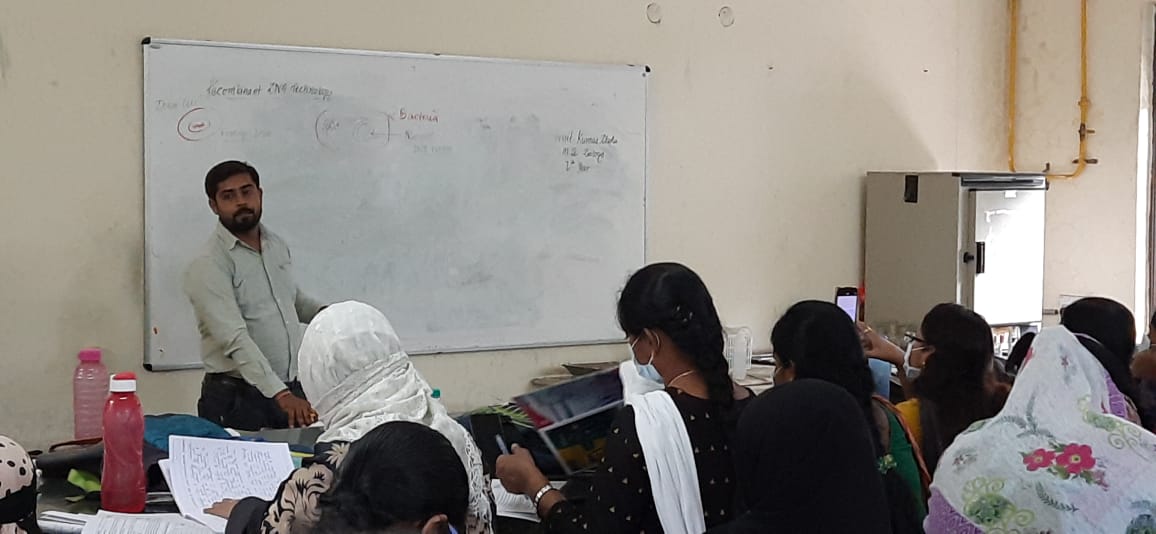
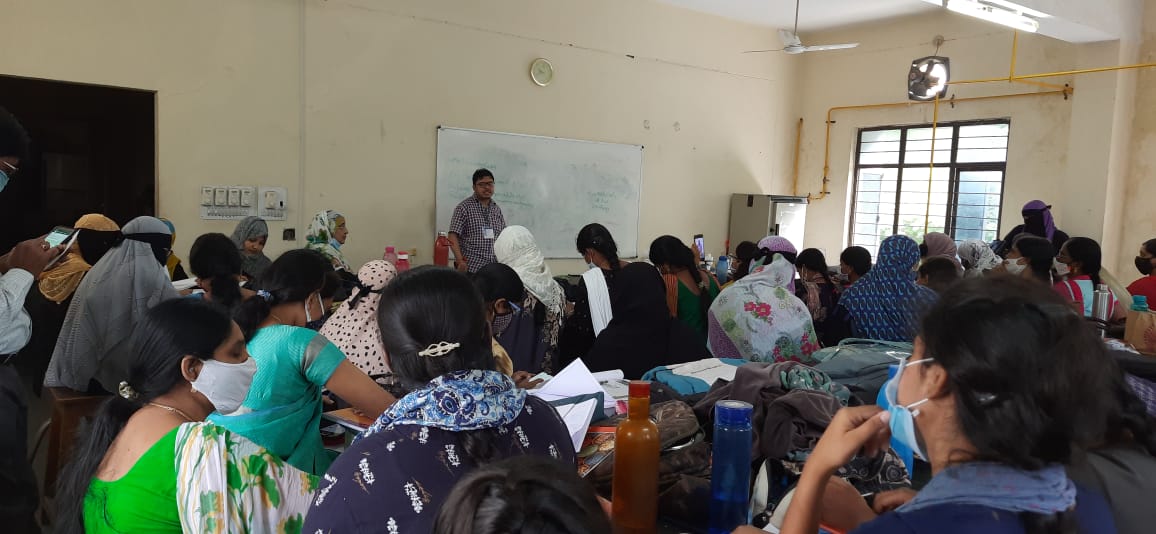
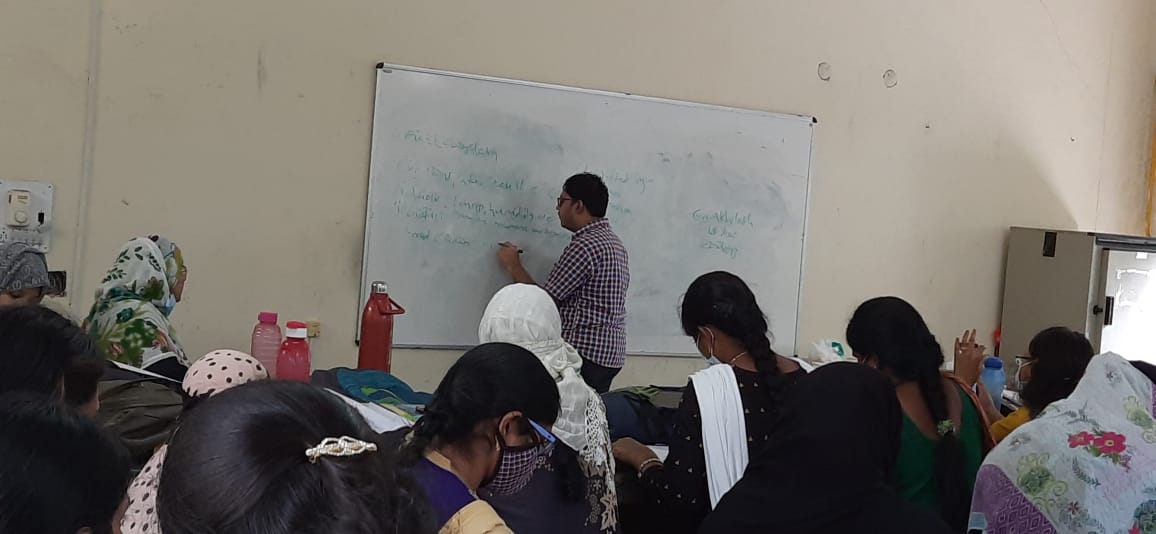
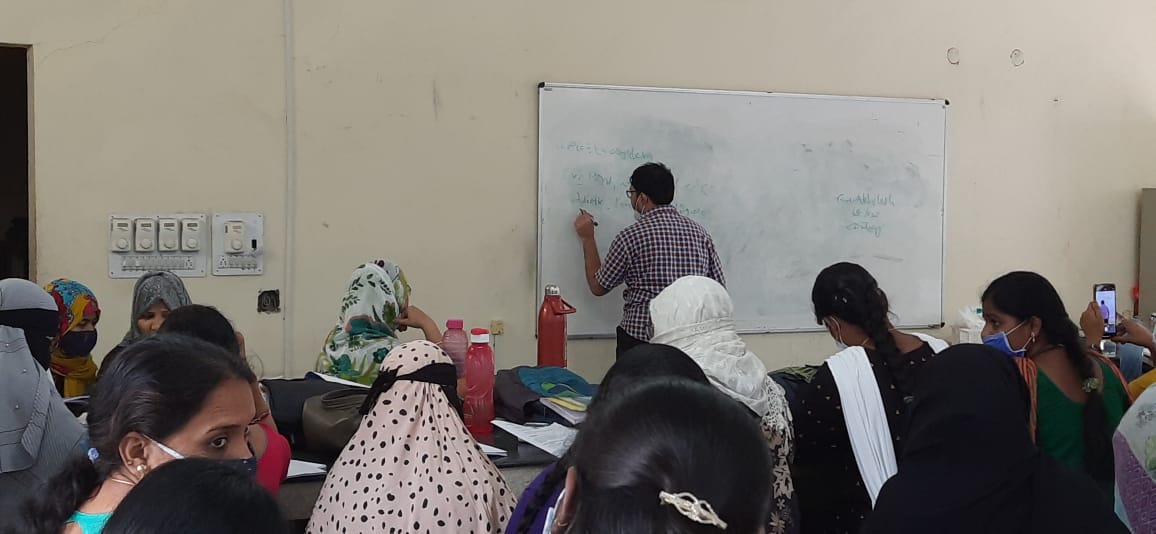
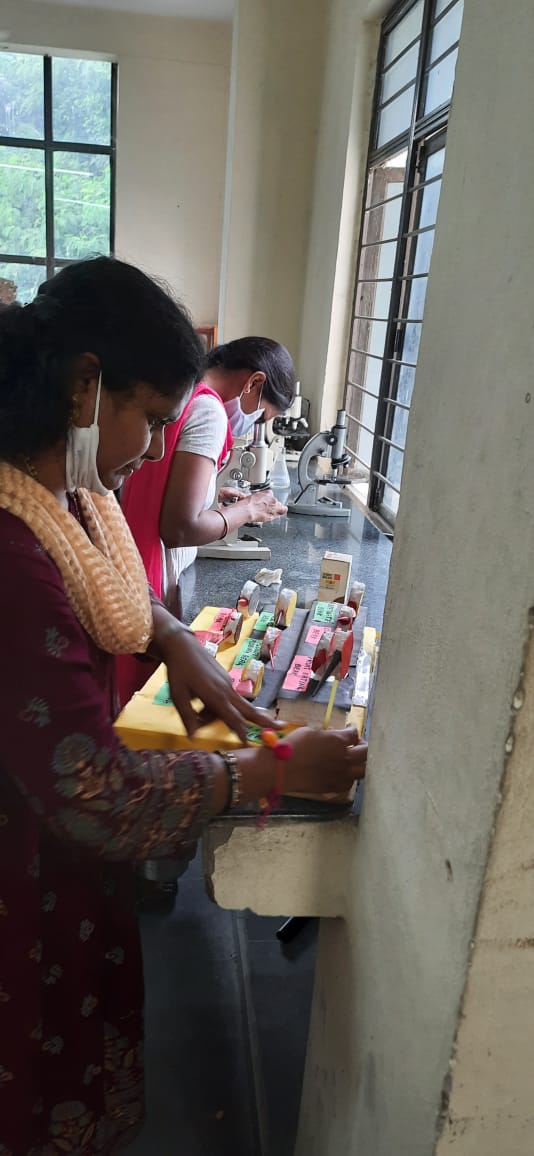
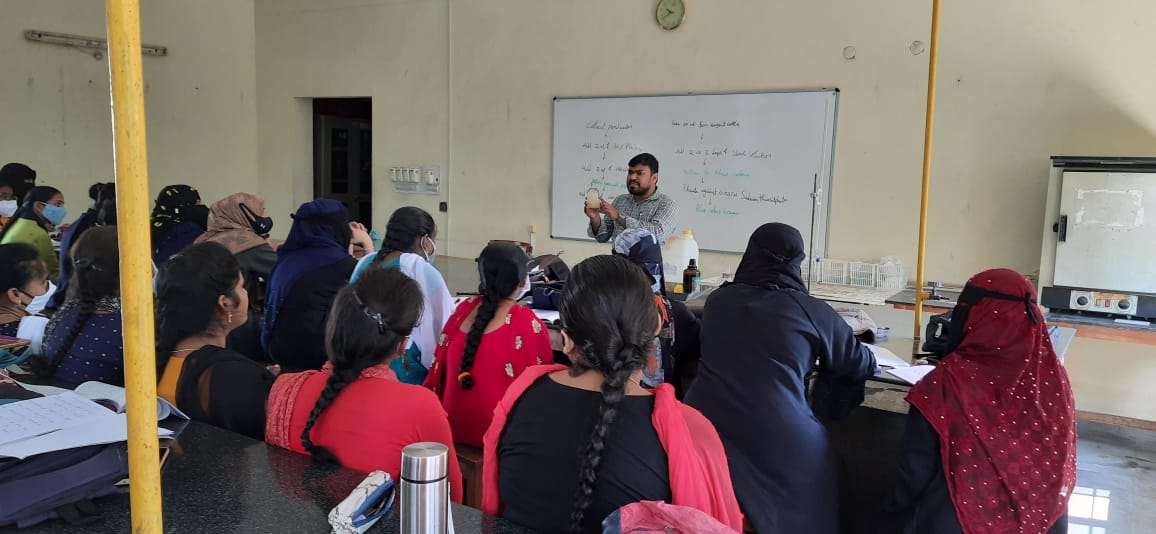
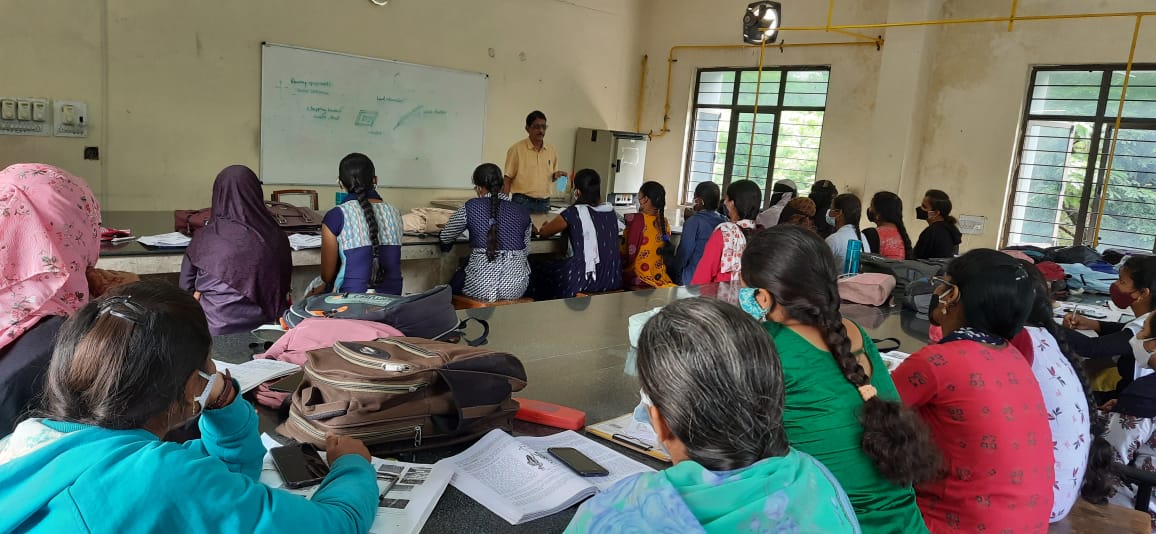
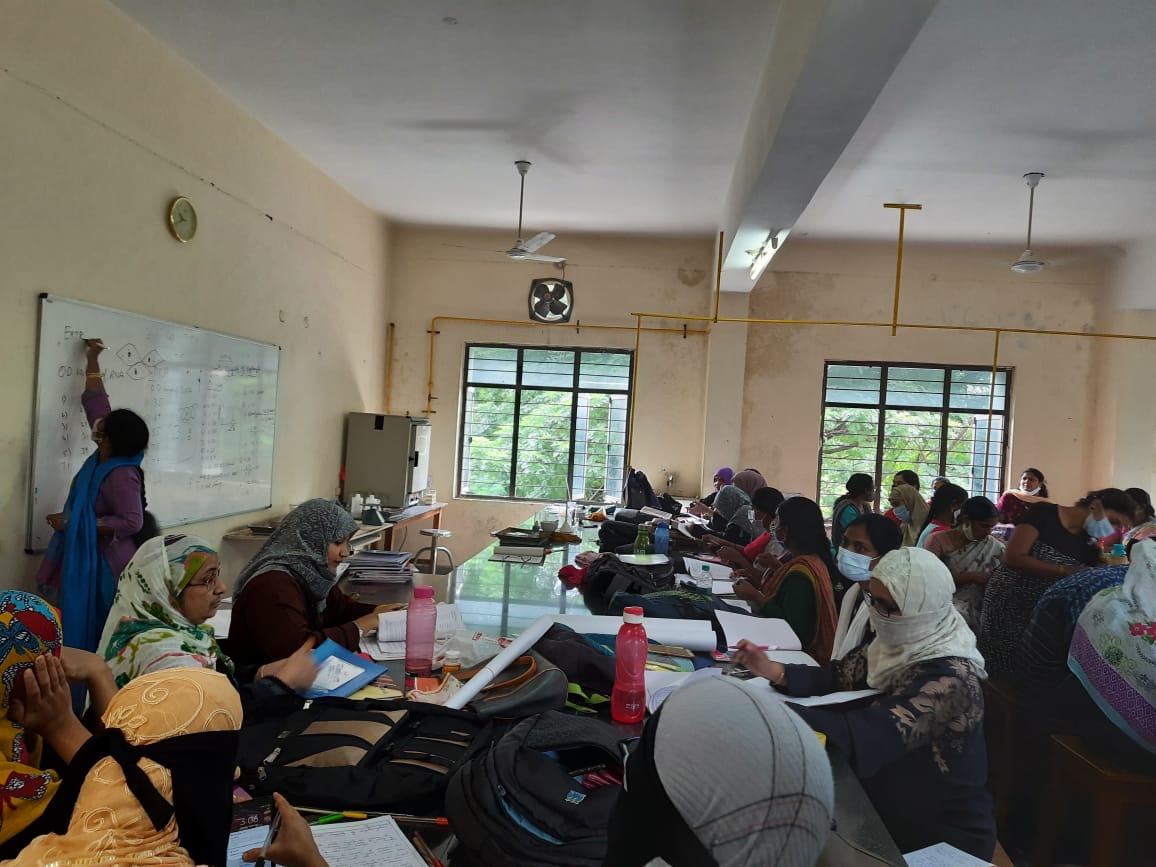
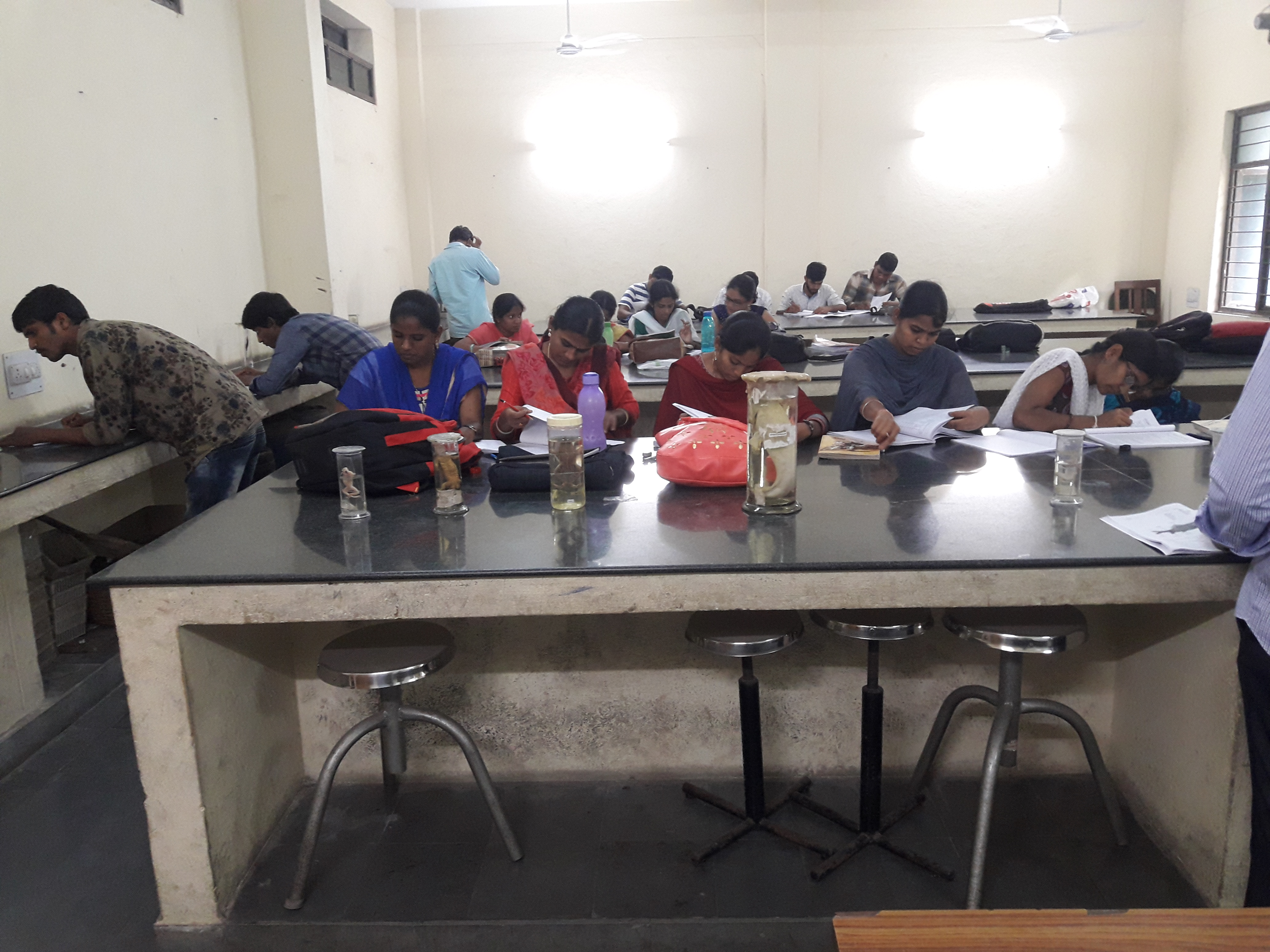
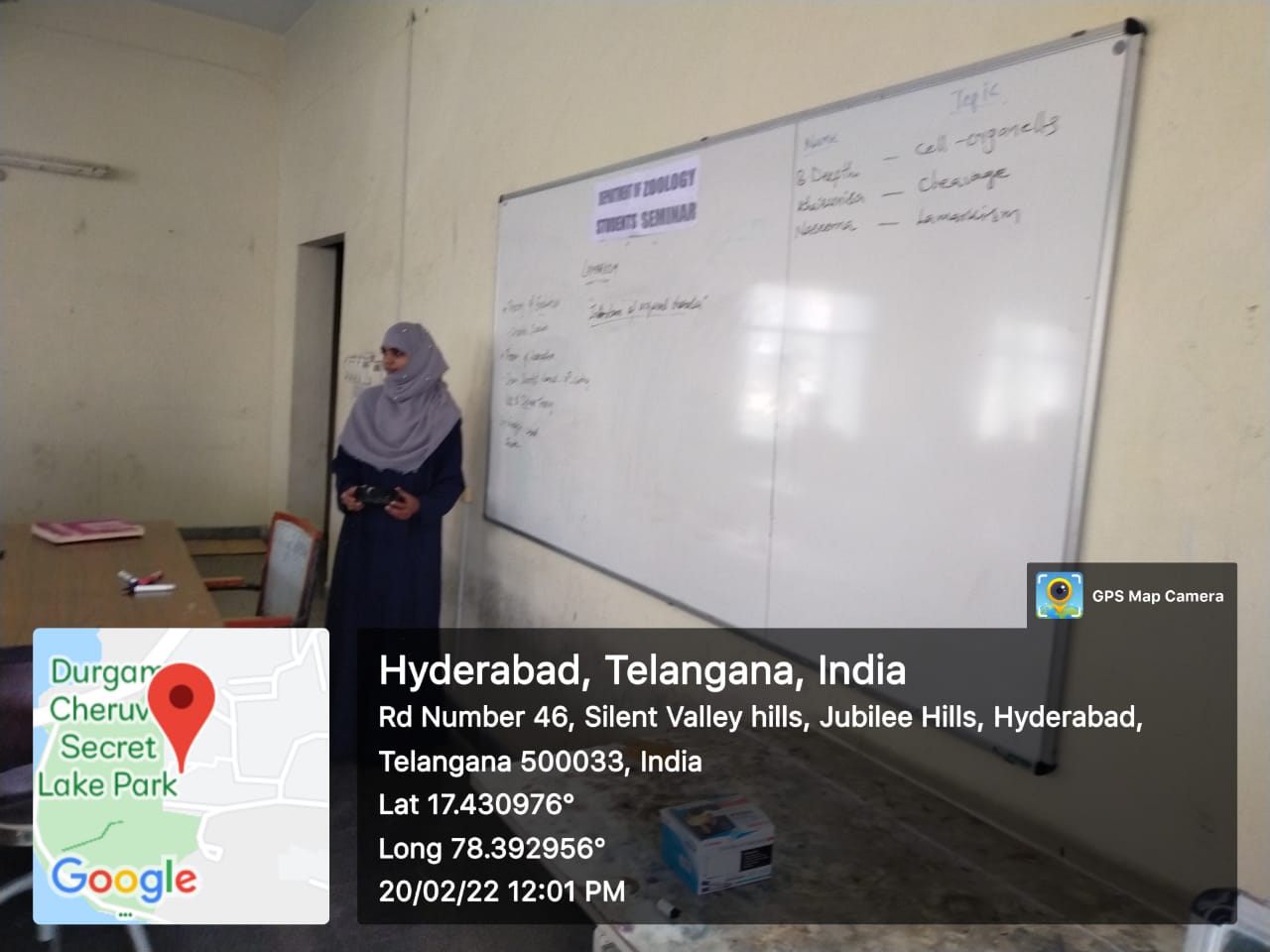
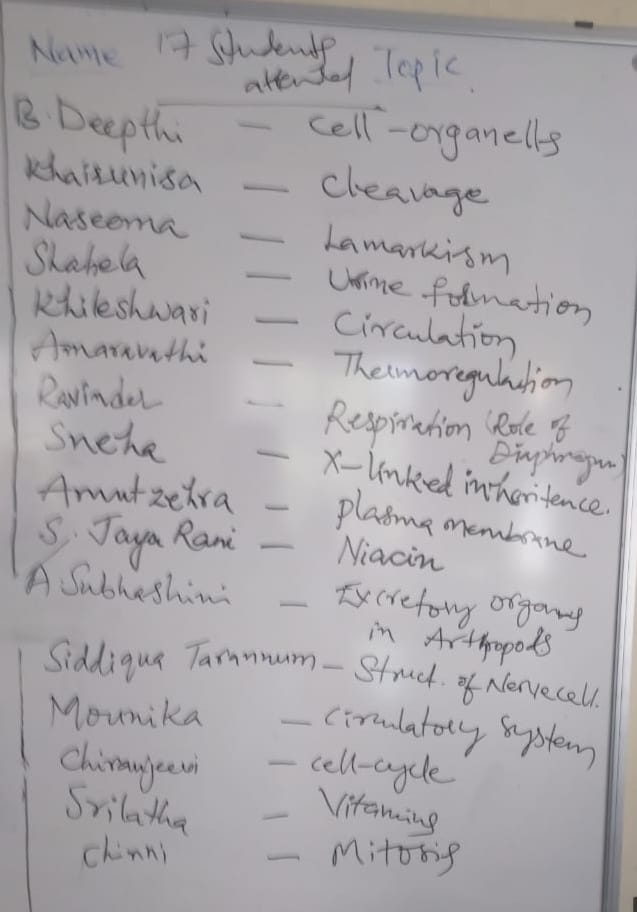
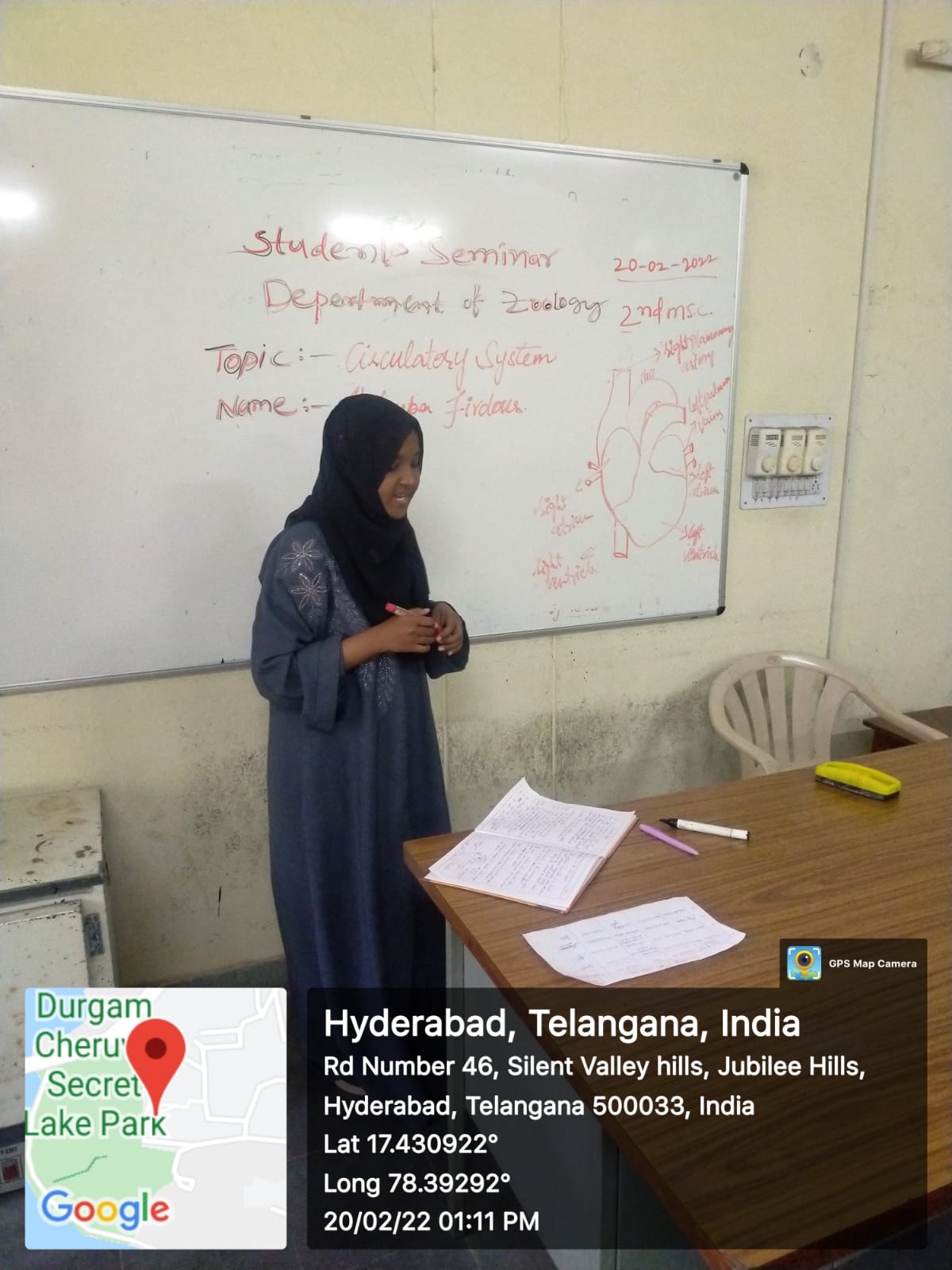
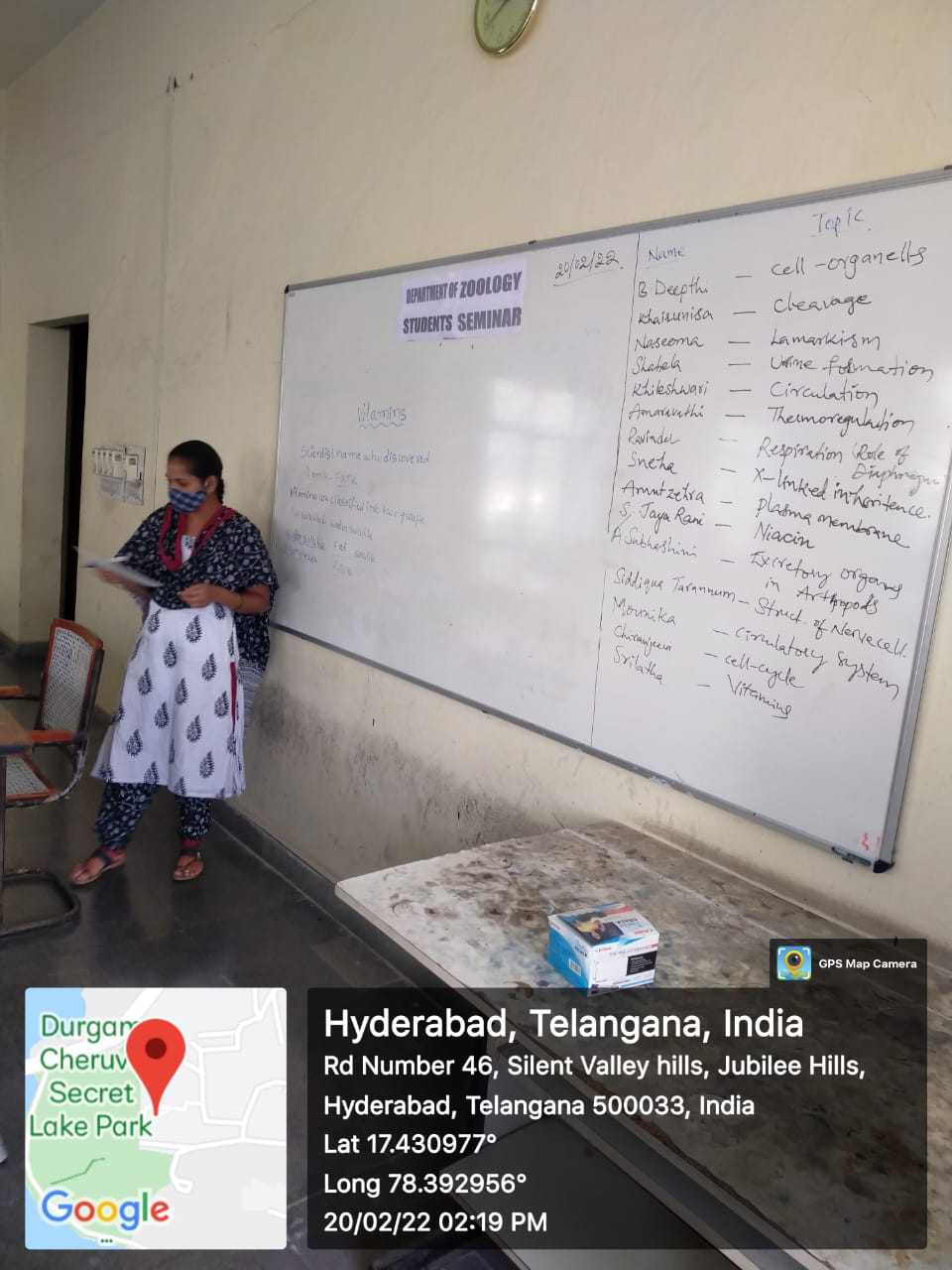
.jpeg)
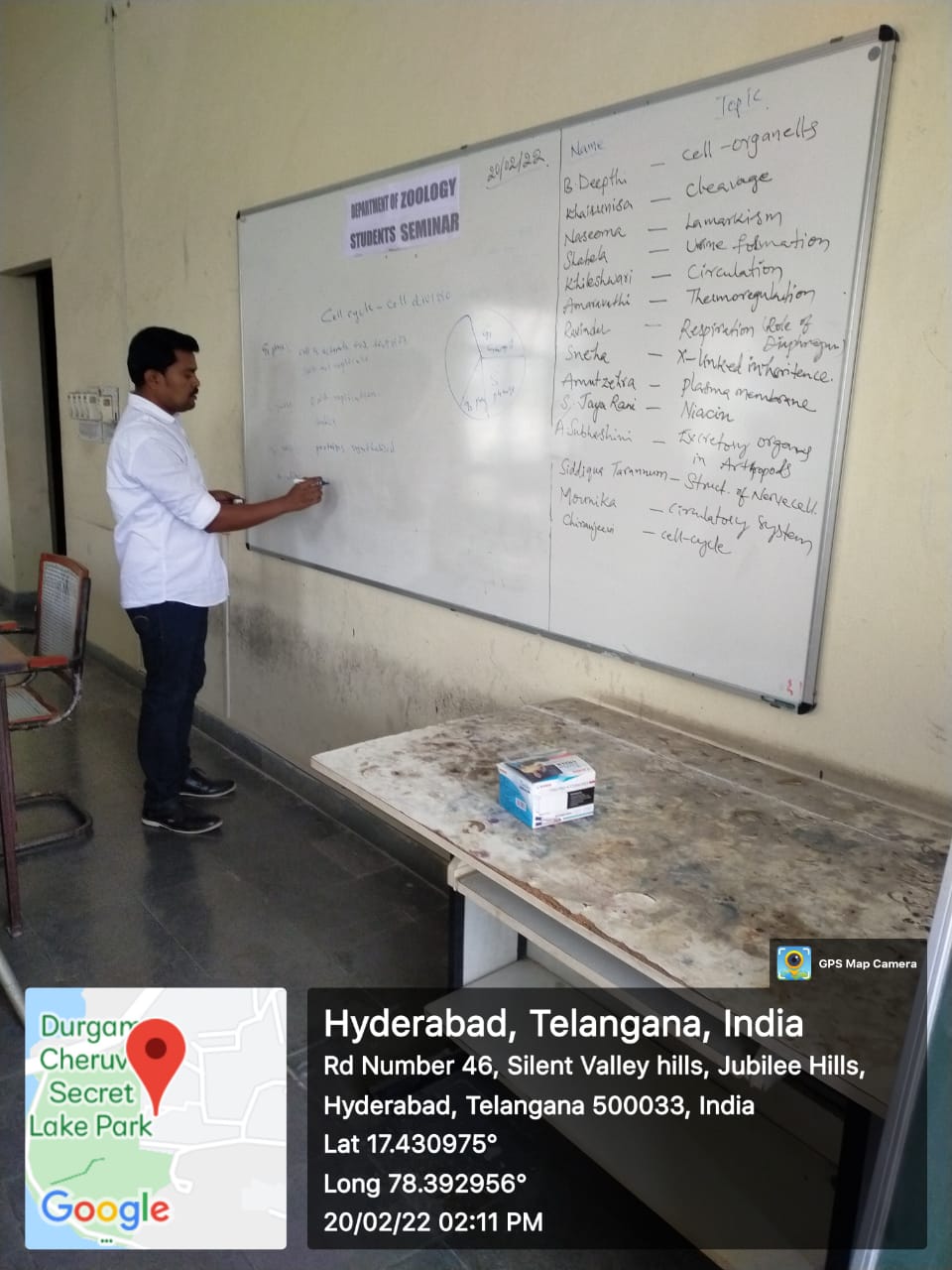
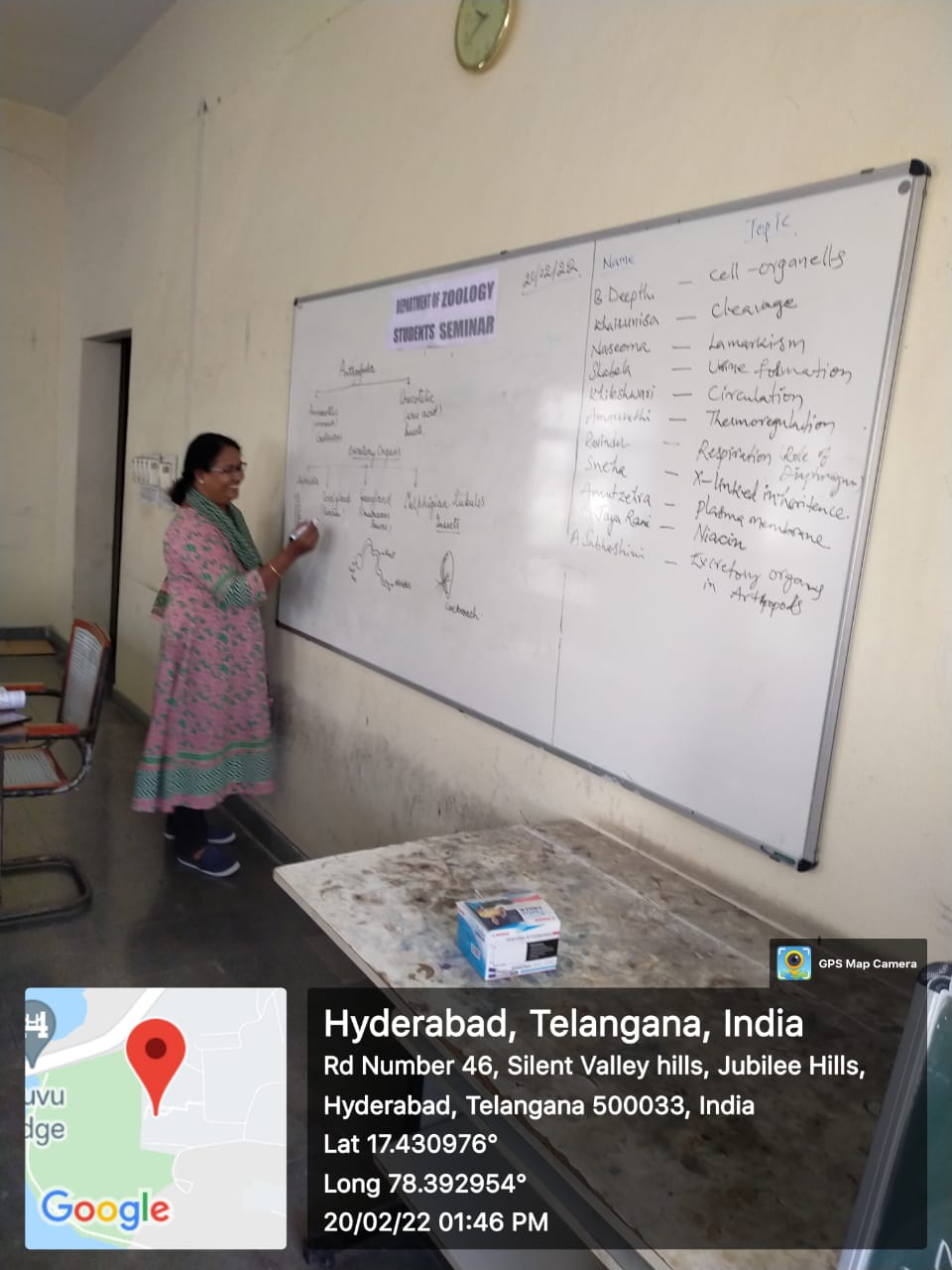
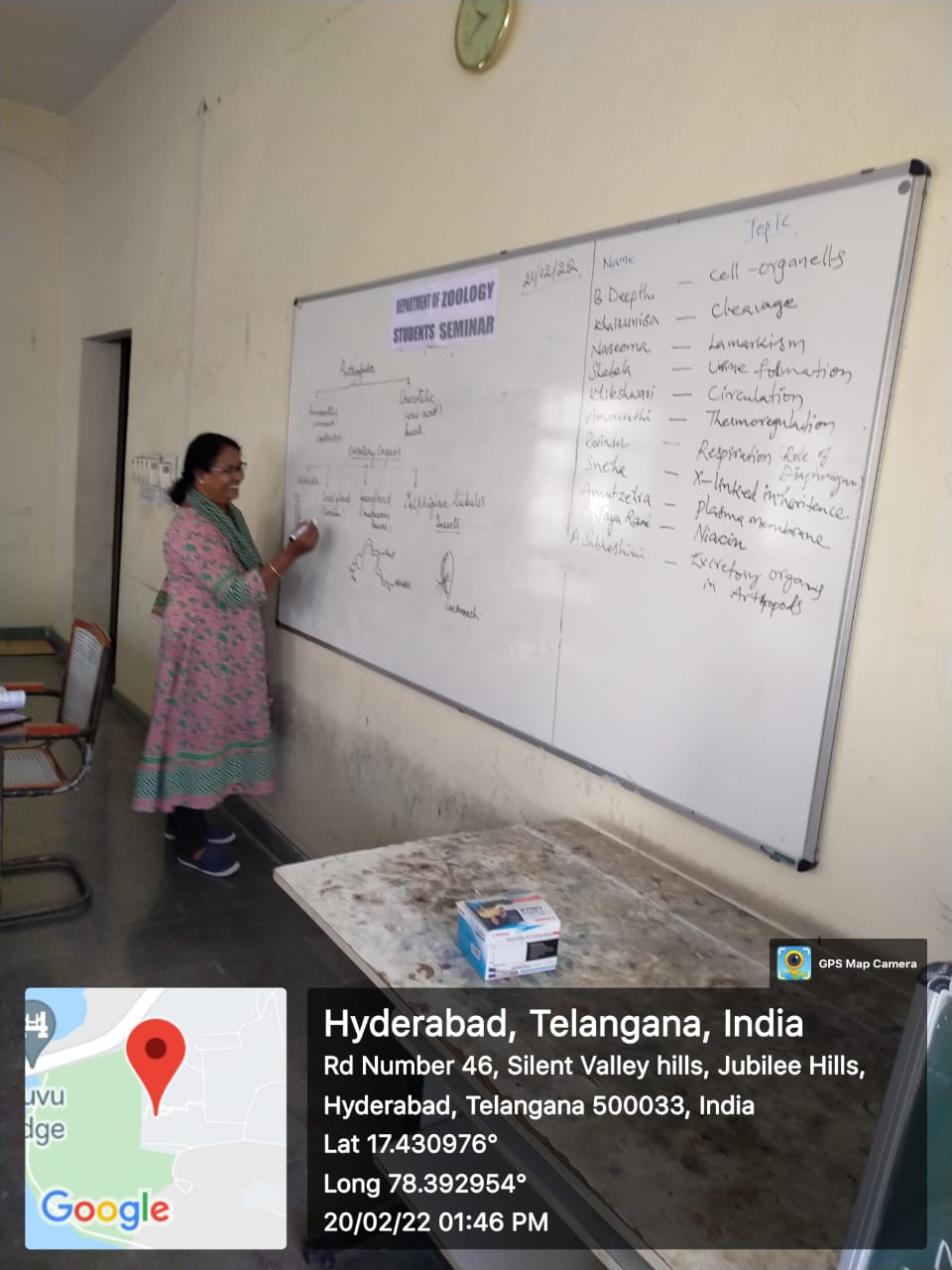
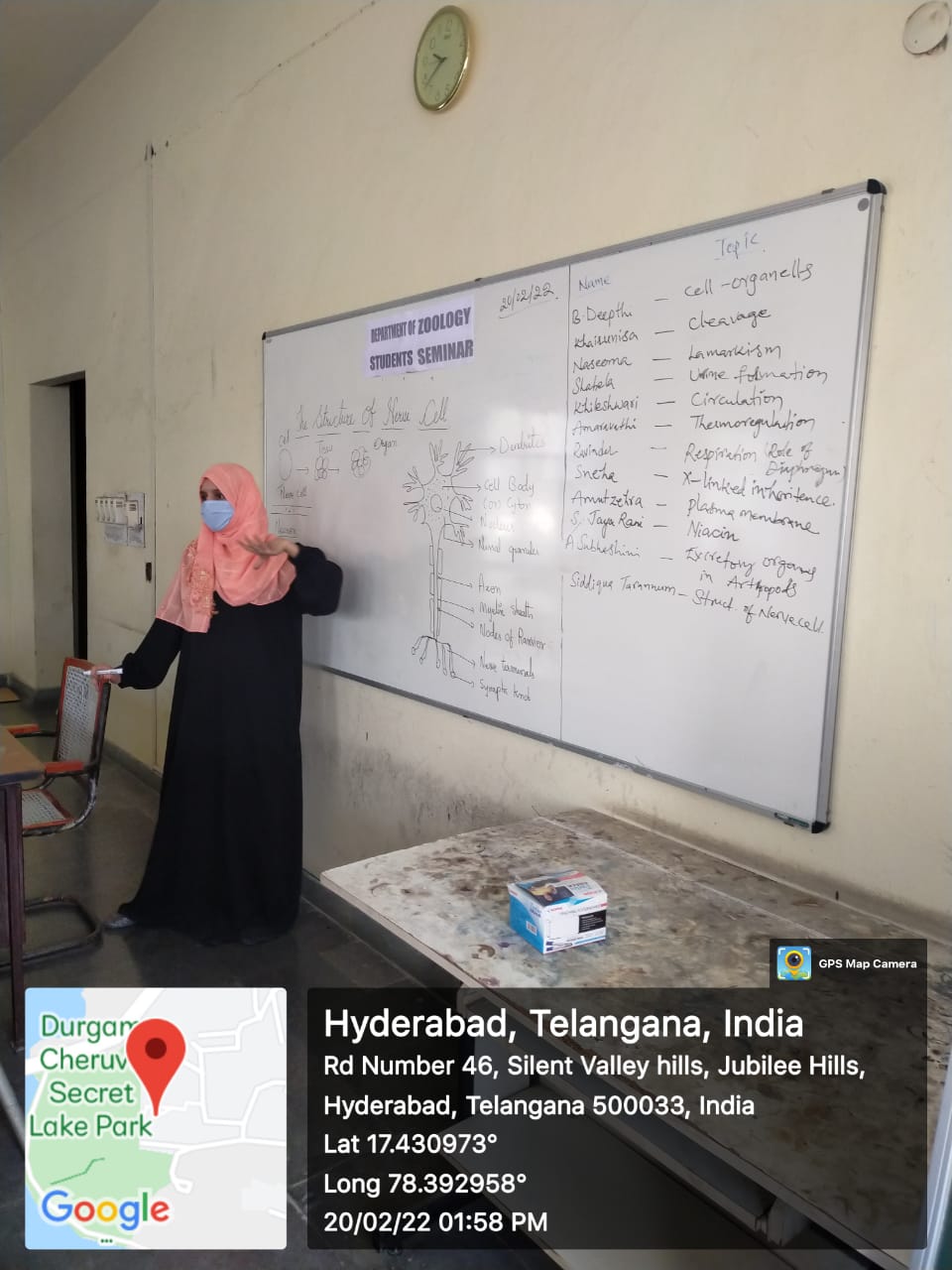
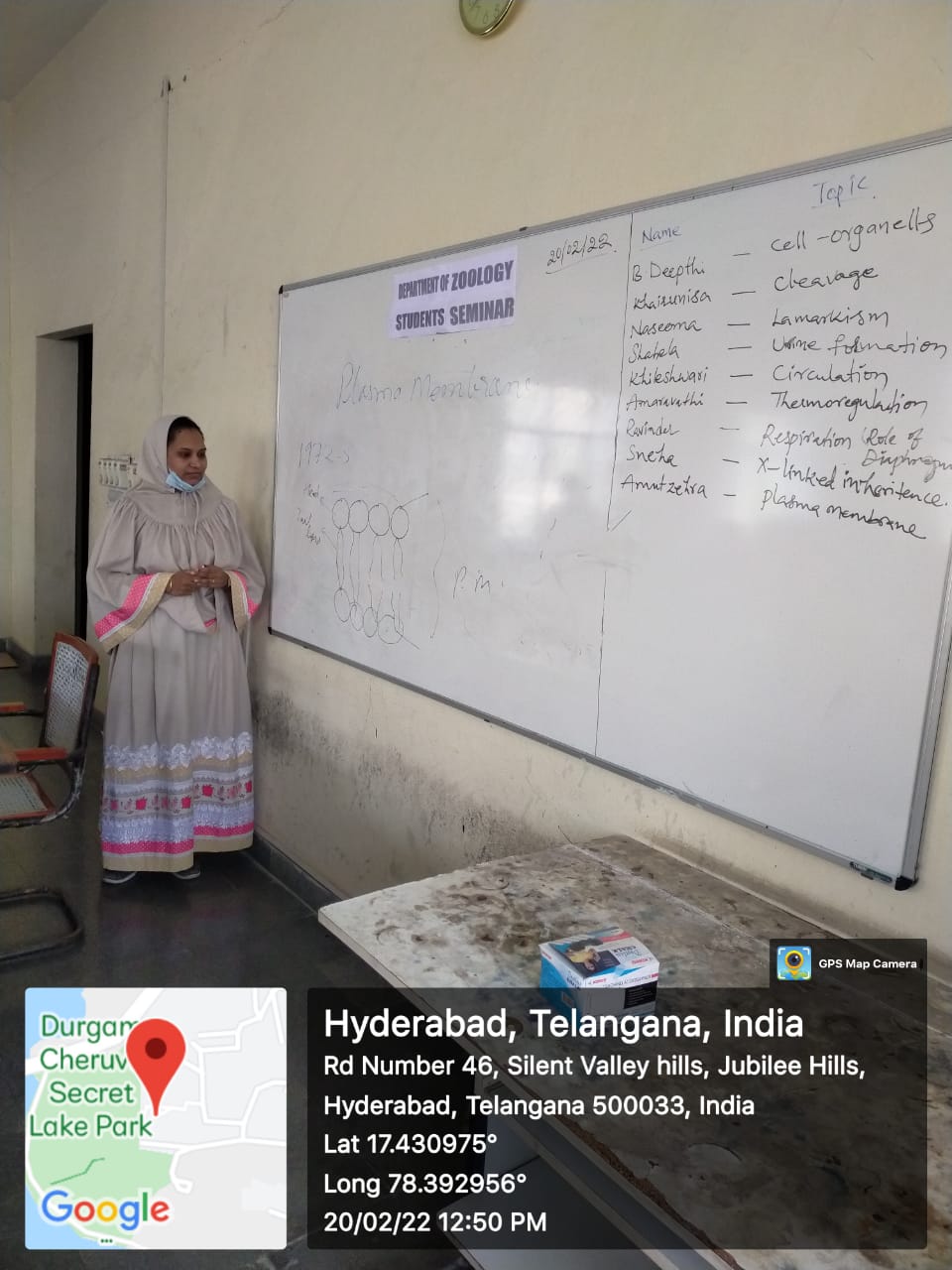
1.jpeg)
